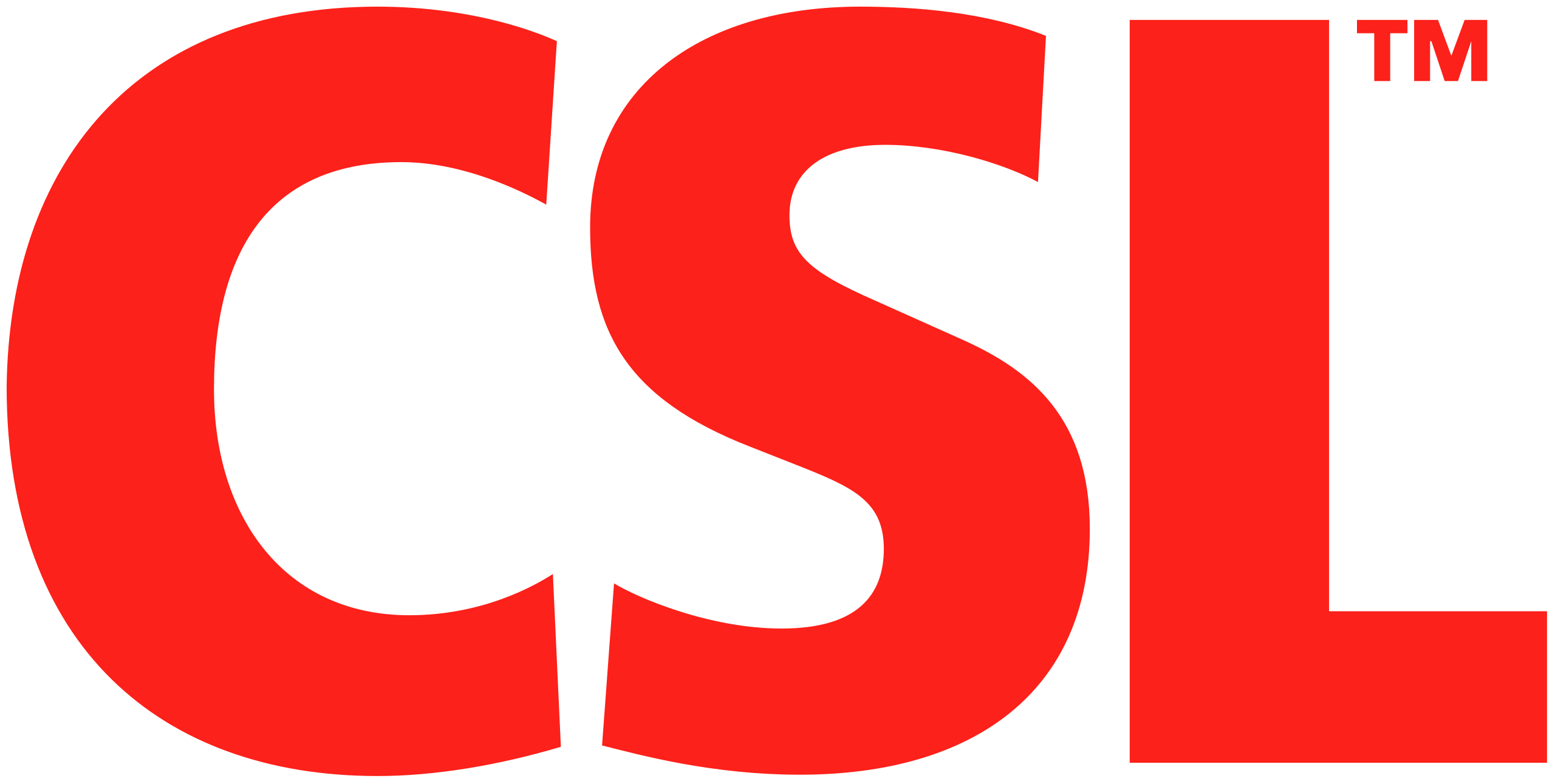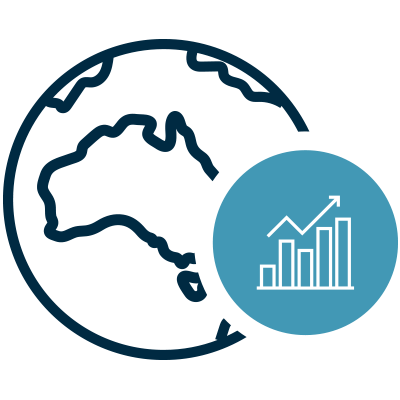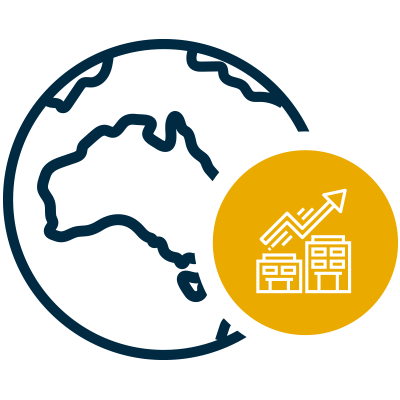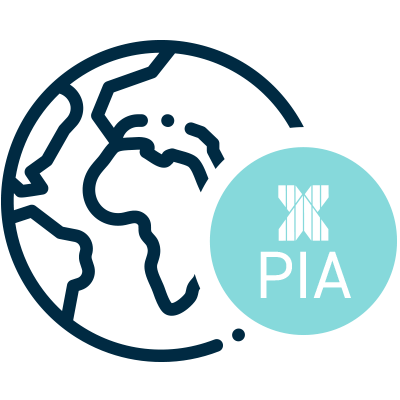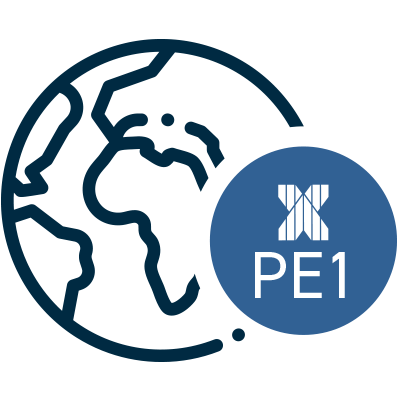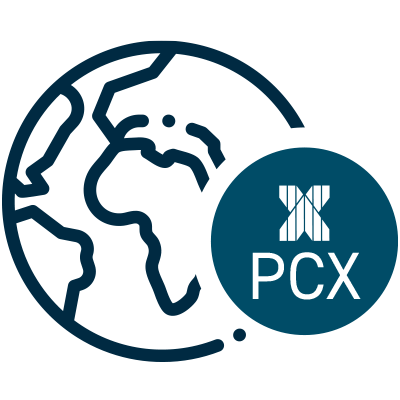https://data.pengana.com/wp-json/pen/performance?fund_code=PENSIF&date=30/11/2023&aggregation_code=Class%20A
Array
(
[0] => Array
(
[date] => 30/11/2023
[table] =>
[piechart] => Array
(
[0] => Array
(
[0] => Sector Breakdown
[1] => ["Consumer Discretionary", 0.034263337],["Health Care", 0.300029032],["Industrials", 0.29479698],["Information Technology", 0.240455329],["Materials", 0.125904807],["Cash", 0.004550515],
)
[1] => Array
(
[0] => Capitalisation Breakdown
[1] => ["2-10bn", 0.298070998],["10-20bn", 0.121552789],[">20bn", 0.575825698],["Cash", 0.004550515],
)
[2] => Array
(
[0] => Region Breakdown
[1] => ["North America", 0.457597467],["Europe ex-UK", 0.305273716],["Japan", 0.064764802],["UK", 0.105112555],["Asia Pacific", 0.062700946],["Cash", 0.004550515],
)
[3] => Array
(
[0] => Custom Sector Breakdown
[1] => ["Health", 0.267374876],["Resource Efficiency", 0.270659033],["Sustainable Transport", 0.076463931],["Environmental Services", 0.125540545],["Water Management", 0.111635726],["Safety", 0.076007815],["Cleaner Energy", 0.030499312],["Wellbeing", 0.01722938],["Education", 0.020038866],["Cash", 0.004550515],
)
)
[topholdings] => AUSUSD/Agilent Technologies Inc/United States/Health Care,AUIUSD/Autodesk Inc/United States/Information Technology,CSL/CSL Ltd/Australia/Health Care,ECLUSD/Ecolab Inc/United States/Materials,B94G471/ICON PLC/United States/Health Care,6490995/Keyence Corp/Japan/Information Technology,BNZHB81/Linde PLC/United States/Materials,BKM4S16/MSA Safety Inc/United States/Industrials,THEUSD/Thermo Fisher Scientific Inc/United States/Health Care,B3P2CN8/Xylem Inc/NY/United States/Industrials,
[topholdingsimg] => https://data.pengana.com/wp-content/uploads/Stock-Icons/download-5-e1607921377179.png,https://data.pengana.com/wp-content/uploads/Autodesk-logo-e1644184012863.png,https://data.pengana.com/wp-content/uploads/2560px-CSL_Limited_logo.svg.png,https://data.pengana.com/wp-content/uploads/Stock-Icons/Ecolab_Logo.png,https://data.pengana.com/wp-content/uploads/Stock-Icons/OG_Facebook-e1607920788456.png,https://data.pengana.com/wp-content/uploads/Stock-Icons/keyence-vector-logo-e1607921289158.png,https://data.pengana.com/wp-content/uploads/Linde_plc_logo_combi_cyan_1_3_2_sRGB.png,https://data.pengana.com/wp-content/uploads/Stock-Icons/1200px-MSA_Safety_Logo.svg.png,https://data.pengana.com/wp-content/uploads/Stock-Icons/TMO_original.png,https://data.pengana.com/wp-content/uploads/Xylem_Logo.svg.png,
[topholdingsintro] => Array
(
[0] => Agilent Technologies is a specialist in the development and manufacture of bio-analytics for the life sciences and chemical analysis industries. The company mission is to advance quality of life. Within healthcare, its analytical instruments are used in the development and testing of healthcare products. Agilent also has a chemical analysis business which makes equipment for monitoring levels of pollutants in the ambient environment and or measuring contaminants in food and the human body.
[1] => Autodesk is a global leader in 3D design and engineering software and services. Its products are used by architects, engineers and designers to design, develop and manufacture and operate a vast range of products, buildings and services. Autodesk tools are a critical component in the design and operation of more resource efficient products and buildings. They can deliver significant resource savings, due to their impressive capabilities and critical position in design process. The product brands include Autodesk 360 cloud services, AutoCAD civil 3D and LT, 3Ds Max, Maya, and Revit.
[2] => CSL develops medical products for serious and life-threatening diseases. Its core business is as a provider of human blood plasma-derived products to treat bleeding disorders, rare and serious infections and autoimmune diseases. CSL also manufactures vaccines and related products, including for flu and cervical cancer, as well as other products that speed up recovery times for patients that have undergone heart surgery, organ transplants and burns. The company provides these solutions across North America, Europe, Asia, Australia as well as other parts of the world.
[3] => Ecolab sells cleaning products and services to restaurants, hotels, hospitals, food and beverage producers and other businesses. The company has a particular focus on energy and water efficiency. Ecolab has developed a range of products and services that help to reduce, and in some cases even eliminate, the use of water in a wide range of industrial applications. In turn, this helps to lower costs through a reduction of energy and water impacts.
[4] => ICON is a clinical research organisation (CRO) which provides outsourced development services on a global basis to the pharmaceutical, biotechnology and medical device industries. The company mission is to accelerate the development of drugs and devices that save lives and improve the quality of life. ICON specialises in the strategic development, management and analysis of programmes to support all stages of the of the clinical development process.
[5] => The company products include machine visions systems including sensors and measuring instruments that are primarily used in the automation of factories. These components help customers achieve higher levels of efficiency, energy-savings, improved material utilisation and reduced wastage and quality management.
[6] => Linde Plc produces and distributes industrial gases. The company operates globally supplying oxygen, hydrogen and other gases to a very wide range of downstream markets including into manufacturing industries, petrochemical and electronics industries. The gases are used in a variety of applications including in making manufacturing processes more efficient and in reducing harmful emissions. The company is establishing a strong presence in the green hydrogen market and also sells oxygen and other gases into the healthcare sector.
[7] => Founded in Pittsburgh in 1914, MSA originally stood for Mine Safety Appliances. This was changed in 2014 to MSA Safety to reflect the broader range of products the company has developed. Today, MSA still manufactures products such as fixed gas and flame detection systems which are used across industry. They are also a leading manufacturer of self-contained breathing apparatus and fire helmets for firefighters as well as fall protection equipment for working at height.
[8] => Thermo Fisher Scientific is one of the largest suppliers of analytical instrument, equipment, consumables and software for healthcare and environmental research, analysis, discovery and diagnostics. The company offers a very wide range of products and services including the equipment needed to analyse samples as well as the variety of containers and other consumables needed to handle them.
[9] => Xylem manufactures a wide range of products and provides services to the water industry. The company water infrastructure business provides a range of pumps, filtration and testing and treatment equipment to water utilities. The company also supplies commercial, residential markets with water and wastewater systems, and provides measurement and control solutions. Xylem strategy is characterised by the application of intelligent technology to improve water efficiency, in products such as smart meters and intelligent monitoring equipment.
[10] =>
)
[pdfchart] => PD94bWwgdmVyc2lvbj0iMS4wIiBlbmNvZGluZz0iVVRGLTgiIHN0YW5kYWxvbmU9Im5vIj8+PHN2ZyB4bWxucz0iaHR0cDovL3d3dy53My5vcmcvMjAwMC9zdmciIGJvcmRlcj0iMCIgZGF0YS1hYy13cmFwcGVyLWlkPSIzMDciIHdpZHRoPSIzMzAiIGhlaWdodD0iMTY1IiBjbGFzcz0iYW55Y2hhcnQtdWktc3VwcG9ydCIgYWMtaWQ9ImFjX3N0YWdlXzhpIiByb2xlPSJwcmVzZW50YXRpb24iIHN0eWxlPSJkaXNwbGF5OiBibG9jazsiPjxkZWZzPjxjbGlwUGF0aCBjbGlwLXJ1bGU9Im5vbnplcm8iIGlkPSJhY19jbGlwXzh4Ij48cGF0aCBkYXRhLWFjLXdyYXBwZXItaWQ9IjMyNiIgaWQ9ImFjX3JlY3RfOHkiIGZpbGw9Im5vbmUiIHN0cm9rZT0iYmxhY2siIGQ9Ik0gMCAwIEwgMTgyLjYwMjQ1MDM3MDc4ODU3IDAgMTgyLjYwMjQ1MDM3MDc4ODU3IDE2LjQwMDAwMDA5NTM2NzQzIDAgMTYuNDAwMDAwMDk1MzY3NDMgMCAwIFoiLz48L2NsaXBQYXRoPjxjbGlwUGF0aCBjbGlwLXJ1bGU9Im5vbnplcm8iIGlkPSJhY19jbGlwXzk3Ij48cGF0aCBkYXRhLWFjLXdyYXBwZXItaWQ9IjMzNCIgaWQ9ImFjX3JlY3RfOTgiIGZpbGw9Im5vbmUiIHN0cm9rZT0iYmxhY2siIGQ9Ik0gNDggMjYgTCAzMjYgMjYgMzI2IDEzNyA0OCAxMzcgNDggMjYgWiIvPjwvY2xpcFBhdGg+PGNsaXBQYXRoIGNsaXAtcnVsZT0ibm9uemVybyIgaWQ9ImFjX2NsaXBfYWIiPjxwYXRoIGRhdGEtYWMtd3JhcHBlci1pZD0iMzcyIiBpZD0iYWNfcmVjdF9hYyIgZmlsbD0ibm9uZSIgc3Ryb2tlPSJibGFjayIgZD0iTSA0OSAyNiBMIDMyNSAyNiAzMjUgMTM1IDQ5IDEzNSA0OSAyNiBaIi8+PC9jbGlwUGF0aD48Y2xpcFBhdGggY2xpcC1ydWxlPSJub256ZXJvIiBpZD0iYWNfY2xpcF9hZyI+PHBhdGggZGF0YS1hYy13cmFwcGVyLWlkPSIzNzUiIGlkPSJhY19yZWN0X2FoIiBmaWxsPSJub25lIiBzdHJva2U9ImJsYWNrIiBkPSJNIDQ5IDI2IEwgMzI2IDI2IDMyNiAxMzYgNDkgMTM2IDQ5IDI2IFoiLz48L2NsaXBQYXRoPjxjbGlwUGF0aCBjbGlwLXJ1bGU9Im5vbnplcm8iIGlkPSJhY19jbGlwX2FuIj48cGF0aCBkYXRhLWFjLXdyYXBwZXItaWQ9IjM4MCIgaWQ9ImFjX3JlY3RfYW8iIGZpbGw9Im5vbmUiIHN0cm9rZT0iYmxhY2siIGQ9Ik0gNDkgMjYgTCAzMjYgMjYgMzI2IDEzNiA0OSAxMzYgNDkgMjYgWiIvPjwvY2xpcFBhdGg+PGNsaXBQYXRoIGNsaXAtcnVsZT0ibm9uemVybyIgaWQ9ImFjX2NsaXBfYXYiPjxwYXRoIGRhdGEtYWMtd3JhcHBlci1pZD0iMzg2IiBpZD0iYWNfcmVjdF9hdyIgZmlsbD0ibm9uZSIgc3Ryb2tlPSJibGFjayIgZD0iTSA0OCAyNiBMIDMyNSAyNiAzMjUgMTM2IDQ4IDEzNiA0OCAyNiBaIi8+PC9jbGlwUGF0aD48L2RlZnM+PGcgZGF0YS1hYy13cmFwcGVyLWlkPSIzMDgiIGlkPSJhY19sYXllcl84aiI+PGcgZGF0YS1hYy13cmFwcGVyLWlkPSIzMTMiIHJvbGU9ImFydGljbGUiIGFyaWEtbGFiZWw9ImxpbmUgY2hhcnQgLCB3aXRoIDIgbGluZSBzZXJpZXMsIC4gWS1zY2FsZSBtaW5pbXVtIHZhbHVlIGlzIDAgLCBtYXhpbXVtIHZhbHVlIGlzIDQyMDAwMC4gWC1zY2FsZSB3aXRoIDIxNiBjYXRlZ29yaWVzOiAzMC8xMi8yMDA1LCAzMS8wMS8yMDA2LCAyOC8wMi8yMDA2LCAzMS8wMy8yMDA2LCAyOC8wNC8yMDA2LCAzMS8wNS8yMDA2LCAzMC8wNi8yMDA2LCAzMS8wNy8yMDA2LCAzMS8wOC8yMDA2LCAyOS8wOS8yMDA2LCAzMS8xMC8yMDA2LCAzMC8xMS8yMDA2LCAyOS8xMi8yMDA2LCAzMS8wMS8yMDA3LCAyOC8wMi8yMDA3LCAzMC8wMy8yMDA3LCAzMC8wNC8yMDA3LCAzMS8wNS8yMDA3LCAyOS8wNi8yMDA3LCAzMS8wNy8yMDA3LCAzMS8wOC8yMDA3LCAyOC8wOS8yMDA3LCAzMS8xMC8yMDA3LCAzMC8xMS8yMDA3LCAzMS8xMi8yMDA3LCAzMS8wMS8yMDA4LCAyOS8wMi8yMDA4LCAzMS8wMy8yMDA4LCAzMC8wNC8yMDA4LCAzMC8wNS8yMDA4LCAzMC8wNi8yMDA4LCAzMS8wNy8yMDA4LCAyOS8wOC8yMDA4LCAzMC8wOS8yMDA4LCAzMS8xMC8yMDA4LCAyOC8xMS8yMDA4LCAzMS8xMi8yMDA4LCAzMC8wMS8yMDA5LCAyNy8wMi8yMDA5LCAzMS8wMy8yMDA5LCAzMC8wNC8yMDA5LCAyOS8wNS8yMDA5LCAzMC8wNi8yMDA5LCAzMS8wNy8yMDA5LCAzMS8wOC8yMDA5LCAzMC8wOS8yMDA5LCAzMC8xMC8yMDA5LCAzMC8xMS8yMDA5LCAzMS8xMi8yMDA5LCAyOS8wMS8yMDEwLCAyNi8wMi8yMDEwLCAzMS8wMy8yMDEwLCAzMC8wNC8yMDEwLCAzMS8wNS8yMDEwLCAzMC8wNi8yMDEwLCAzMC8wNy8yMDEwLCAzMS8wOC8yMDEwLCAzMC8wOS8yMDEwLCAyOS8xMC8yMDEwLCAzMC8xMS8yMDEwLCAzMS8xMi8yMDEwLCAzMS8wMS8yMDExLCAyOC8wMi8yMDExLCAzMS8wMy8yMDExLCAyOS8wNC8yMDExLCAzMS8wNS8yMDExLCAzMC8wNi8yMDExLCAyOS8wNy8yMDExLCAzMS8wOC8yMDExLCAzMC8wOS8yMDExLCAzMS8xMC8yMDExLCAzMC8xMS8yMDExLCAzMC8xMi8yMDExLCAzMS8wMS8yMDEyLCAyOS8wMi8yMDEyLCAzMC8wMy8yMDEyLCAzMC8wNC8yMDEyLCAzMS8wNS8yMDEyLCAyOS8wNi8yMDEyLCAzMS8wNy8yMDEyLCAzMS8wOC8yMDEyLCAyOC8wOS8yMDEyLCAzMS8xMC8yMDEyLCAzMC8xMS8yMDEyLCAzMS8xMi8yMDEyLCAzMS8wMS8yMDEzLCAyOC8wMi8yMDEzLCAyOC8wMy8yMDEzLCAzMC8wNC8yMDEzLCAzMS8wNS8yMDEzLCAyOC8wNi8yMDEzLCAzMS8wNy8yMDEzLCAzMC8wOC8yMDEzLCAzMC8wOS8yMDEzLCAzMS8xMC8yMDEzLCAyOS8xMS8yMDEzLCAzMS8xMi8yMDEzLCAzMS8wMS8yMDE0LCAyOC8wMi8yMDE0LCAzMS8wMy8yMDE0LCAzMC8wNC8yMDE0LCAzMC8wNS8yMDE0LCAzMC8wNi8yMDE0LCAzMS8wNy8yMDE0LCAyOS8wOC8yMDE0LCAzMC8wOS8yMDE0LCAzMS8xMC8yMDE0LCAyOC8xMS8yMDE0LCAzMS8xMi8yMDE0LCAzMC8wMS8yMDE1LCAyNy8wMi8yMDE1LCAzMS8wMy8yMDE1LCAzMC8wNC8yMDE1LCAyOS8wNS8yMDE1LCAzMC8wNi8yMDE1LCAzMS8wNy8yMDE1LCAzMS8wOC8yMDE1LCAzMC8wOS8yMDE1LCAzMC8xMC8yMDE1LCAzMC8xMS8yMDE1LCAzMS8xMi8yMDE1LCAyOS8wMS8yMDE2LCAyOS8wMi8yMDE2LCAzMS8wMy8yMDE2LCAyOS8wNC8yMDE2LCAzMS8wNS8yMDE2LCAzMC8wNi8yMDE2LCAyOS8wNy8yMDE2LCAzMS8wOC8yMDE2LCAzMC8wOS8yMDE2LCAzMS8xMC8yMDE2LCAzMC8xMS8yMDE2LCAzMC8xMi8yMDE2LCAzMS8wMS8yMDE3LCAyOC8wMi8yMDE3LCAzMS8wMy8yMDE3LCAyOC8wNC8yMDE3LCAzMS8wNS8yMDE3LCAzMC8wNi8yMDE3LCAzMS8wNy8yMDE3LCAzMS8wOC8yMDE3LCAyOS8wOS8yMDE3LCAzMS8xMC8yMDE3LCAzMC8xMS8yMDE3LCAyOS8xMi8yMDE3LCAzMS8wMS8yMDE4LCAyOC8wMi8yMDE4LCAyOS8wMy8yMDE4LCAzMC8wNC8yMDE4LCAzMS8wNS8yMDE4LCAyOS8wNi8yMDE4LCAzMS8wNy8yMDE4LCAzMS8wOC8yMDE4LCAyOC8wOS8yMDE4LCAzMS8xMC8yMDE4LCAzMC8xMS8yMDE4LCAzMS8xMi8yMDE4LCAzMS8wMS8yMDE5LCAyOC8wMi8yMDE5LCAyOS8wMy8yMDE5LCAzMC8wNC8yMDE5LCAzMS8wNS8yMDE5LCAyOC8wNi8yMDE5LCAzMS8wNy8yMDE5LCAzMC8wOC8yMDE5LCAzMC8wOS8yMDE5LCAzMS8xMC8yMDE5LCAyOS8xMS8yMDE5LCAzMS8xMi8yMDE5LCAzMS8wMS8yMDIwLCAyOC8wMi8yMDIwLCAzMS8wMy8yMDIwLCAzMC8wNC8yMDIwLCAyOS8wNS8yMDIwLCAzMC8wNi8yMDIwLCAzMS8wNy8yMDIwLCAzMS8wOC8yMDIwLCAzMC8wOS8yMDIwLCAzMC8xMC8yMDIwLCAzMC8xMS8yMDIwLCAzMS8xMi8yMDIwLCAyOS8wMS8yMDIxLCAyNi8wMi8yMDIxLCAzMS8wMy8yMDIxLCAzMC8wNC8yMDIxLCAzMS8wNS8yMDIxLCAzMC8wNi8yMDIxLCAzMC8wNy8yMDIxLCAzMS8wOC8yMDIxLCAzMC8wOS8yMDIxLCAyOS8xMC8yMDIxLCAzMC8xMS8yMDIxLCAzMS8xMi8yMDIxLCAzMS8wMS8yMDIyLCAyOC8wMi8yMDIyLCAzMS8wMy8yMDIyLCAyOS8wNC8yMDIyLCAzMS8wNS8yMDIyLCAzMC8wNi8yMDIyLCAyOS8wNy8yMDIyLCAzMS8wOC8yMDIyLCAzMC8wOS8yMDIyLCAzMS8xMC8yMDIyLCAzMC8xMS8yMDIyLCAzMC8xMi8yMDIyLCAzMS8wMS8yMDIzLCAyOC8wMi8yMDIzLCAzMS8wMy8yMDIzLCAyOC8wNC8yMDIzLCAzMS8wNS8yMDIzLCAzMC8wNi8yMDIzLCAzMS8wNy8yMDIzLCAzMS8wOC8yMDIzLCAyOS8wOS8yMDIzLCAzMS8xMC8yMDIzLCAzMC8xMS8yMDIzLCAuICIgaWQ9ImFjX2NoYXJ0XzhrIj48ZyBkYXRhLWFjLXdyYXBwZXItaWQ9IjMxNCIgaWQ9ImFjX2xheWVyXzhtIj48cGF0aCBkYXRhLWFjLXdyYXBwZXItaWQ9IjMxNSIgaWQ9ImFjX3BhdGhfOGwiIGZpbGw9IiNFQUVBRUEiIHN0cm9rZT0ibm9uZSIgZD0iTSAwIDAgTCAzMzAgMCAzMzAgMCAzMzAgMTY1IDMzMCAxNjUgMCAxNjUgMCAxNjUgMCAwIDAgMCBaIi8+PC9nPjxwYXRoIGRhdGEtYWMtd3JhcHBlci1pZD0iMzg1IiBjbGlwLXBhdGg9InVybCgmcXVvdDsjYWNfY2xpcF9hdiZxdW90OykiIGNsaXBQYXRoVW5pdHM9InVzZXJTcGFjZU9uVXNlIiBpZD0iYWNfcGF0aF9heCIgZmlsbD0ibm9uZSIgc3Ryb2tlPSJub25lIiBkPSJNIDAsMCIvPjxwYXRoIGRhdGEtYWMtd3JhcHBlci1pZD0iMzI3IiBpZD0iYWNfcGF0aF85MCIgZmlsbD0ibm9uZSIgc3Ryb2tlPSJub25lIiBkPSJNIDQ4IDEzNi41IEwgMzI1IDEzNi41IDMyNSAxMTcuNSA0OCAxMTcuNSBaIi8+PHBhdGggZGF0YS1hYy13cmFwcGVyLWlkPSIzMjgiIGlkPSJhY19wYXRoXzkxIiBmaWxsPSJub25lIiBzdHJva2U9Im5vbmUiIGQ9Ik0gNDggMTE3LjUgTCAzMjUgMTE3LjUgMzI1IDk5LjUgNDggOTkuNSBaIi8+PHBhdGggZGF0YS1hYy13cmFwcGVyLWlkPSIzMjkiIGlkPSJhY19wYXRoXzkyIiBmaWxsPSJub25lIiBzdHJva2U9Im5vbmUiIGQ9Ik0gNDggOTkuNSBMIDMyNSA5OS41IDMyNSA4MS41IDQ4IDgxLjUgWiIvPjxwYXRoIGRhdGEtYWMtd3JhcHBlci1pZD0iMzMwIiBpZD0iYWNfcGF0aF85MyIgZmlsbD0ibm9uZSIgc3Ryb2tlPSJub25lIiBkPSJNIDQ4IDgxLjUgTCAzMjUgODEuNSAzMjUgNjIuNSA0OCA2Mi41IFoiLz48cGF0aCBkYXRhLWFjLXdyYXBwZXItaWQ9IjMzMSIgaWQ9ImFjX3BhdGhfOTQiIGZpbGw9Im5vbmUiIHN0cm9rZT0ibm9uZSIgZD0iTSA0OCA2Mi41IEwgMzI1IDYyLjUgMzI1IDQ0LjUgNDggNDQuNSBaIi8+PHBhdGggZGF0YS1hYy13cmFwcGVyLWlkPSIzMzIiIGlkPSJhY19wYXRoXzk1IiBmaWxsPSJub25lIiBzdHJva2U9Im5vbmUiIGQ9Ik0gNDggNDQuNSBMIDMyNSA0NC41IDMyNSAyNi41IDQ4IDI2LjUgWiIvPjxwYXRoIGRhdGEtYWMtd3JhcHBlci1pZD0iMzMzIiBjbGlwLXBhdGg9InVybCgmcXVvdDsjYWNfY2xpcF85NyZxdW90OykiIGNsaXBQYXRoVW5pdHM9InVzZXJTcGFjZU9uVXNlIiBpZD0iYWNfcGF0aF85OSIgZmlsbD0ibm9uZSIgc3Ryb2tlPSIjQ0VDRUNFIiBkPSJNIDQ4IDEzNi41IEwgMzI1IDEzNi41IE0gNDggMTE3LjUgTCAzMjUgMTE3LjUgTSA0OCA5OS41IEwgMzI1IDk5LjUgTSA0OCA4MS41IEwgMzI1IDgxLjUgTSA0OCA2Mi41IEwgMzI1IDYyLjUgTSA0OCA0NC41IEwgMzI1IDQ0LjUgTSA0OCAyNi41IEwgMzI1IDI2LjUiLz48cGF0aCBkYXRhLWFjLXdyYXBwZXItaWQ9IjM3MSIgY2xpcC1wYXRoPSJ1cmwoJnF1b3Q7I2FjX2NsaXBfYWImcXVvdDspIiBjbGlwUGF0aFVuaXRzPSJ1c2VyU3BhY2VPblVzZSIgaWQ9ImFjX3BhdGhfYWQiIGZpbGw9IiNjNWM1YzUiIHN0cm9rZT0ibm9uZSIgZD0iTSA0OCAxMzYgTCA0OCAyNiAyMjcgMjYgMjI3IDEzNiBaIi8+PGcgZGF0YS1hYy13cmFwcGVyLWlkPSIzNzgiIGNsaXAtcGF0aD0idXJsKCZxdW90OyNhY19jbGlwX2FuJnF1b3Q7KSIgY2xpcFBhdGhVbml0cz0idXNlclNwYWNlT25Vc2UiIGlkPSJhY19sYXllcl9hcCI+PHBhdGggZGF0YS1hYy13cmFwcGVyLWlkPSIzNzkiIGlkPSJhY19wYXRoX2FsIiBmaWxsPSJub25lIiBzdHJva2U9IiMwMDc4NjQiIHN0cm9rZS13aWR0aD0iMSIgZD0iTSA0OCAxMDkuODA5NTIzODA5NTIzODEgTCA0OS4yODgzNzIwOTMwMjMyNTYgMTA4LjU2MDUgNTAuNTc2NzQ0MTg2MDQ2NTEgMTA3LjI4NTI4NTcxNDI4NTcyIDUxLjg2NTExNjI3OTA2OTc3IDEwNS43NDc5MDQ3NjE5MDQ3NiA1My4xNTM0ODgzNzIwOTMwMiAxMDYuNDAyNDA0NzYxOTA0NzYgNTQuNDQxODYwNDY1MTE2MjggMTA3Ljg5OTQ1MjM4MDk1MjM4IDU1LjczMDIzMjU1ODEzOTUzNCAxMDcuNTU2MzU3MTQyODU3MTQgNTcuMDE4NjA0NjUxMTYyNzkgMTA5LjA4MDY0Mjg1NzE0Mjg2IDU4LjMwNjk3Njc0NDE4NjA0NSAxMDguMTkyMjYxOTA0NzYxOSA1OS41OTUzNDg4MzcyMDkzIDEwNy4wNjE4ODA5NTIzODA5NSA2MC44ODM3MjA5MzAyMzI1NTYgMTA3LjA2NTgwOTUyMzgwOTUyIDYyLjE3MjA5MzAyMzI1NTgxIDEwNi42NzA4NTcxNDI4NTcxNCA2My40NjA0NjUxMTYyNzkwNyAxMDYuMDMwMjM4MDk1MjM4MSA2NC43NDg4MzcyMDkzMDIzMiAxMDQuNjczNTcxNDI4NTcxNDIgNjYuMDM3MjA5MzAyMzI1NTggMTA1LjEyNDMwOTUyMzgwOTUzIDY3LjMyNTU4MTM5NTM0ODgzIDEwNS40NTkwMjM4MDk1MjM4MSA2OC42MTM5NTM0ODgzNzIwOSAxMDQuNTQ4NjQyODU3MTQyODUgNjkuOTAyMzI1NTgxMzk1MzUgMTAzLjYyNzUyMzgwOTUyMzgxIDcxLjE5MDY5NzY3NDQxODYgMTA0LjAyNjkyODU3MTQyODU3IDcyLjQ3OTA2OTc2NzQ0MTg2IDEwNC4zMjgzODA5NTIzODA5NSA3My43Njc0NDE4NjA0NjUxMSAxMDMuMzkwNSA3NS4wNTU4MTM5NTM0ODgzNyAxMDQuNDc2MzU3MTQyODU3MTUgNzYuMzQ0MTg2MDQ2NTExNjIgMTA1LjAzMDI4NTcxNDI4NTcxIDc3LjYzMjU1ODEzOTUzNDg4IDEwNC41NjA0Mjg1NzE0Mjg1NyA3OC45MjA5MzAyMzI1NTgxMyAxMDQuMjEzNDA0NzYxOTA0NzcgODAuMjA5MzAyMzI1NTgxNCAxMDguMTg5NjQyODU3MTQyODYgODEuNDk3Njc0NDE4NjA0NjUgMTA4LjYxODExOTA0NzYxOTA1IDgyLjc4NjA0NjUxMTYyNzkyIDEwOC41NTk0NTIzODA5NTIzOCA4NC4wNzQ0MTg2MDQ2NTExNiAxMDguMzMwMDIzODA5NTIzODEgODUuMzYyNzkwNjk3Njc0NDMgMTA4LjMwOTU5NTIzODA5NTI0IDg2LjY1MTE2Mjc5MDY5NzY4IDExMC4wOTIzODA5NTIzODA5NSA4Ny45Mzk1MzQ4ODM3MjA5NCAxMDkuODAxOTI4NTcxNDI4NTggODkuMjI3OTA2OTc2NzQ0MTggMTA3LjE0NDM4MDk1MjM4MDk2IDkwLjUxNjI3OTA2OTc2NzQ1IDEwOC45MzM3MTQyODU3MTQyOSA5MS44MDQ2NTExNjI3OTA2OSAxMTEuMjkwODU3MTQyODU3MTMgOTMuMDkzMDIzMjU1ODEzOTYgMTEyLjIzNjU5NTIzODA5NTIzIDk0LjM4MTM5NTM0ODgzNzIgMTEyLjg3MzU0NzYxOTA0NzYxIDk1LjY2OTc2NzQ0MTg2MDQ3IDExMS4xOTU1MjM4MDk1MjM4IDk2Ljk1ODEzOTUzNDg4MzcxIDExMy40MzQ4MDk1MjM4MDk1MiA5OC4yNDY1MTE2Mjc5MDY5OCAxMTQuOTEwMzgwOTUyMzgwOTYgOTkuNTM0ODgzNzIwOTMwMjIgMTEzLjU1ODk1MjM4MDk1MjM4IDEwMC44MjMyNTU4MTM5NTM1IDExNC4wMDgxMTkwNDc2MTkwNSAxMDIuMTExNjI3OTA2OTc2NzQgMTEzLjQxMDE5MDQ3NjE5MDQ4IDEwMy40IDExMi44MzI0Mjg1NzE0Mjg1NyAxMDQuNjg4MzcyMDkzMDIzMjUgMTEyLjI5ODkyODU3MTQyODU4IDEwNS45NzY3NDQxODYwNDY1MiAxMTIuNTU0MDIzODA5NTIzODEgMTA3LjI2NTExNjI3OTA2OTc2IDExMy4zNzc3MTQyODU3MTQyOSAxMDguNTUzNDg4MzcyMDkzMDMgMTEzLjI2Mzc4NTcxNDI4NTcyIDEwOS44NDE4NjA0NjUxMTYyNyAxMTEuODE5OTA0NzYxOTA0NzcgMTExLjEzMDIzMjU1ODEzOTU0IDExMi42MTQgMTEyLjQxODYwNDY1MTE2MjggMTEyLjQ0MTQwNDc2MTkwNDc2IDExMy43MDY5NzY3NDQxODYwNSAxMTEuNTc1NTQ3NjE5MDQ3NjMgMTE0Ljk5NTM0ODgzNzIwOTMgMTExLjY1NzI2MTkwNDc2MTkxIDExNi4yODM3MjA5MzAyMzI1NiAxMTEuMzYwNTIzODA5NTIzODEgMTE3LjU3MjA5MzAyMzI1NTgyIDExMi4wODYgMTE4Ljg2MDQ2NTExNjI3OTA3IDExMi41MjYgMTIwLjE0ODgzNzIwOTMwMjMzIDExMy43MDgyMzgwOTUyMzgxIDEyMS40MzcyMDkzMDIzMjU1NyAxMTMuNDQyNDA0NzYxOTA0NzUgMTIyLjcyNTU4MTM5NTM0ODg0IDExMi43MzU1MjM4MDk1MjM4MSAxMjQuMDEzOTUzNDg4MzcyMSAxMTIuNTY2ODU3MTQyODU3MTUgMTI1LjMwMjMyNTU4MTM5NTM3IDExMi4yNjUxNDI4NTcxNDI4NiAxMjYuNTkwNjk3Njc0NDE4NiAxMTEuNDc1NSAxMjcuODc5MDY5NzY3NDQxODYgMTExLjYzNDIxNDI4NTcxNDI4IDEyOS4xNjc0NDE4NjA0NjUxMiAxMTEuODczMzMzMzMzMzMzMzMgMTMwLjQ1NTgxMzk1MzQ4ODM2IDExMi4wNDE0NzYxOTA0NzYxOSAxMzEuNzQ0MTg2MDQ2NTExNjMgMTExLjk3NzA0NzYxOTA0NzYyIDEzMy4wMzI1NTgxMzk1MzQ5IDExMi4zMDg2MTkwNDc2MTkwNSAxMzQuMzIwOTMwMjMyNTU4MTQgMTEzLjY0NDMzMzMzMzMzMzM0IDEzNS42MDkzMDIzMjU1ODEzOCAxMTQuOTc2OTA0NzYxOTA0NzYgMTM2Ljg5NzY3NDQxODYwNDY1IDExNC43MjQ2OTA0NzYxOTA0NyAxMzguMTg2MDQ2NTExNjI3OTIgMTE0LjMwMDE0Mjg1NzE0Mjg2IDEzOS40NzQ0MTg2MDQ2NTExNiAxMTUuMzE3NjQyODU3MTQyODYgMTQwLjc2Mjc5MDY5NzY3NDQgMTE0Ljk0MjA3MTQyODU3MTQyIDE0Mi4wNTExNjI3OTA2OTc2NyAxMTQuOTQyMDcxNDI4NTcxNDIgMTQzLjMzOTUzNDg4MzcyMDk0IDExNC45NDIwNzE0Mjg1NzE0MiAxNDQuNjI3OTA2OTc2NzQ0MTkgMTE0Ljk0MjA3MTQyODU3MTQyIDE0NS45MTYyNzkwNjk3Njc0MyAxMTQuOTQyMDcxNDI4NTcxNDIgMTQ3LjIwNDY1MTE2Mjc5MDcgMTE1LjE3ODMwOTUyMzgwOTUzIDE0OC40OTMwMjMyNTU4MTM5NyAxMTUuNzc1OTc2MTkwNDc2MTkgMTQ5Ljc4MTM5NTM0ODgzNzIgMTE2LjA3OTc4NTcxNDI4NTcyIDE1MS4wNjk3Njc0NDE4NjA0NSAxMTUuMTk3OTUyMzgwOTUyMzkgMTUyLjM1ODEzOTUzNDg4MzcyIDExNC43MjQ2OTA0NzYxOTA0NyAxNTMuNjQ2NTExNjI3OTA3IDExNS4xMDMxNDI4NTcxNDI4NiAxNTQuOTM0ODgzNzIwOTMwMjMgMTE0LjYwNTI2MTkwNDc2MTkgMTU2LjIyMzI1NTgxMzk1MzQ3IDExMy45NTgwOTUyMzgwOTUyNCAxNTcuNTExNjI3OTA2OTc2NzcgMTEyLjgyODQ5OTk5OTk5OTk5IDE1OC44IDExMi4zMDQ5NTIzODA5NTIzOSAxNjAuMDg4MzcyMDkzMDIzMjUgMTEyLjQzMTcxNDI4NTcxNDI5IDE2MS4zNzY3NDQxODYwNDY1IDExMS45NzQ0Mjg1NzE0Mjg1OCAxNjIuNjY1MTE2Mjc5MDY5NzYgMTA5LjkwNTM4MDk1MjM4MDk1IDE2My45NTM0ODgzNzIwOTMwMyAxMDkuNTY3MDAwMDAwMDAwMDEgMTY1LjI0MTg2MDQ2NTExNjI4IDEwNy43OTM5MDQ3NjE5MDQ3NyAxNjYuNTMwMjMyNTU4MTM5NTIgMTA3LjYzNDE0Mjg1NzE0Mjg1IDE2Ny44MTg2MDQ2NTExNjI4MSAxMDcuNTE2MDIzODA5NTIzOCAxNjkuMTA2OTc2NzQ0MTg2MDYgMTA3LjE3OTQ3NjE5MDQ3NjIgMTcwLjM5NTM0ODgzNzIwOTMgMTA1LjIxODg1NzE0Mjg1NzE1IDE3MS42ODM3MjA5MzAyMzI1NCAxMDMuODQ4MzA5NTIzODA5NTIgMTcyLjk3MjA5MzAyMzI1NTggMTAzLjYyNTQyODU3MTQyODU3IDE3NC4yNjA0NjUxMTYyNzkwOCAxMDIuOTU4NjE5MDQ3NjE5MDUgMTc1LjU0ODgzNzIwOTMwMjM1IDEwNC4zMDM3NjE5MDQ3NjE5IDE3Ni44MzcyMDkzMDIzMjU2IDEwNC45MDM3ODU3MTQyODU3MiAxNzguMTI1NTgxMzk1MzQ4ODMgMTA0LjQ0MDczODA5NTIzODA5IDE3OS40MTM5NTM0ODgzNzIxIDEwNC4wMzYzNTcxNDI4NTcxNCAxODAuNzAyMzI1NTgxMzk1MzQgMTA0LjQwNTkwNDc2MTkwNDc2IDE4MS45OTA2OTc2NzQ0MTg2IDEwMy42ODQzNTcxNDI4NTcxNCAxODMuMjc5MDY5NzY3NDQxODUgMTAyLjUxODg4MDk1MjM4MDk1IDE4NC41Njc0NDE4NjA0NjUxMiAxMDIuMzExNzE0Mjg1NzE0MjkgMTg1Ljg1NTgxMzk1MzQ4ODM3IDEwMC44MTY0OTk5OTk5OTk5OSAxODcuMTQ0MTg2MDQ2NTExNiA5OS43NTIzODA5NTIzODA5NSAxODguNDMyNTU4MTM5NTM0OSA5OS4wMTIyMzgwOTUyMzgxIDE4OS43MjA5MzAyMzI1NTgxNSA5Ni44NjA0Mjg1NzE0Mjg1NyAxOTEuMDA5MzAyMzI1NTgxMzYgOTUuNTAzNSAxOTIuMjk3Njc0NDE4NjA0NjMgOTUuOTc0NDA0NzYxOTA0NzYgMTkzLjU4NjA0NjUxMTYyNzkgOTMuOTI2NTcxNDI4NTcxNDQgMTk0Ljg3NDQxODYwNDY1MTE0IDk1LjIyODIzODA5NTIzODEgMTk2LjE2Mjc5MDY5NzY3NDQgOTMuNDEzNzYxOTA0NzYxOSAxOTcuNDUxMTYyNzkwNjk3NjggOTQuNzUyODgwOTUyMzgwOTUgMTk4LjczOTUzNDg4MzcyMDkyIDk2LjkwNDQyODU3MTQyODU3IDIwMC4wMjc5MDY5NzY3NDQxNiA5NC4wMDA2OTA0NzYxOTA0NyAyMDEuMzE2Mjc5MDY5NzY3NCA5NC4xMjExNjY2NjY2NjY2NyAyMDIuNjA0NjUxMTYyNzkwNyA5NC44NjU1IDIwMy44OTMwMjMyNTU4MTM5NCA5OC4zOTg4NTcxNDI4NTcxNCAyMDUuMTgxMzk1MzQ4ODM3MiA5Ni45MDMzODA5NTIzODA5NiAyMDYuNDY5NzY3NDQxODYwNDUgOTcuNTUwNTQ3NjE5MDQ3NjIgMjA3Ljc1ODEzOTUzNDg4MzcgOTYuNjcyNjQyODU3MTQyODYgMjA5LjA0NjUxMTYyNzkwNyA5NC42NTc4MDk1MjM4MDk1MyAyMTAuMzM0ODgzNzIwOTMwMjQgOTYuOTY4ODU3MTQyODU3MTMgMjExLjYyMzI1NTgxMzk1MzQ1IDk0LjczNDI4NTcxNDI4NTcgMjEyLjkxMTYyNzkwNjk3NjcyIDk0LjU5MzY0Mjg1NzE0Mjg1IDIxNC4yIDk1Ljc0MzQwNDc2MTkwNDc3IDIxNS40ODgzNzIwOTMwMjMyNiA5Ny4xMjM2NDI4NTcxNDI4NyAyMTYuNzc2NzQ0MTg2MDQ2NSA5NS44NzIyNjE5MDQ3NjE5IDIxOC4wNjUxMTYyNzkwNjk3NyA5NC43NDc2NDI4NTcxNDI4NiAyMTkuMzUzNDg4MzcyMDkzIDk1LjM0NTMwOTUyMzgwOTUzIDIyMC42NDE4NjA0NjUxMTYyOCA5NC42NjM1NzE0Mjg1NzE0MyAyMjEuOTMwMjMyNTU4MTM5NTIgOTMuNzg2MTkwNDc2MTkwNDggMjIzLjIxODYwNDY1MTE2MjggOTEuNTk0MzA5NTIzODA5NTMgMjI0LjUwNjk3Njc0NDE4NjAzIDg5LjkzODAyMzgwOTUyMzggMjI1Ljc5NTM0ODgzNzIwOTI3IDkwLjQ0OTc4NTcxNDI4NTcxIDIyNy4wODM3MjA5MzAyMzI1MiA5MS45Njg1NzE0Mjg1NzE0NCAyMjguMzcyMDkzMDIzMjU1ODEgOTAuOTI5NTk1MjM4MDk1MjMgMjI5LjY2MDQ2NTExNjI3OTA4IDg5LjM4MDk1MjM4MDk1MjM4IDIzMC45NDg4MzcyMDkzMDIzMyA4Ny4wMTA0NTIzODA5NTIzOSAyMzIuMjM3MjA5MzAyMzI1NiA4Ni4yMTI0Mjg1NzE0Mjg1NyAyMzMuNTI1NTgxMzk1MzQ4OCA4Ny43NzA3NjE5MDQ3NjE5MSAyMzQuODEzOTUzNDg4MzcyMDggODYuNDE1NjY2NjY2NjY2NjcgMjM2LjEwMjMyNTU4MTM5NTM1IDg2LjAzMzAyMzgwOTUyMzgxIDIzNy4zOTA2OTc2NzQ0MTg2IDg1LjM4MTQwNDc2MTkwNDc2IDIzOC42NzkwNjk3Njc0NDE4NiA4NC45MTg2MTkwNDc2MTkwNSAyMzkuOTY3NDQxODYwNDY1MSA4My45MjcwNDc2MTkwNDc2MSAyNDEuMjU1ODEzOTUzNDg4MzQgODMuNzI0MDcxNDI4NTcxNDMgMjQyLjU0NDE4NjA0NjUxMTY0IDgyLjQxMTQwNDc2MTkwNDc2IDI0My44MzI1NTgxMzk1MzQ4OCA4MC4xNDAxNjY2NjY2NjY2NiAyNDUuMTIwOTMwMjMyNTU4MTIgODEuNTIzODA5NTIzODA5NTIgMjQ2LjQwOTMwMjMyNTU4MTM2IDg1LjU3MDIzODA5NTIzODEgMjQ3LjY5NzY3NDQxODYwNDYgODQuOTMzMDIzODA5NTIzOCAyNDguOTg2MDQ2NTExNjI3OTMgODguMTM0Mjg1NzE0Mjg1NzEgMjUwLjI3NDQxODYwNDY1MTE3IDg2LjI2OTI2MTkwNDc2MTkgMjUxLjU2Mjc5MDY5NzY3NDQyIDgyLjc0MTkyODU3MTQyODU3IDI1Mi44NTExNjI3OTA2OTc2OSA4Mi45MDI0NzYxOTA0NzYyIDI1NC4xMzk1MzQ4ODM3MjA5IDc5LjQxMzExOTA0NzYxOTA2IDI1NS40Mjc5MDY5NzY3NDQxNyA4My4yMzc3MTQyODU3MTQyOSAyNTYuNzE2Mjc5MDY5NzY3NDQgNzkuNDM2NjkwNDc2MTkwNDggMjU4LjAwNDY1MTE2Mjc5MDY1IDc5LjQ2OTY5MDQ3NjE5MDQ4IDI1OS4yOTMwMjMyNTU4MTQgODAuNTY5OTUyMzgwOTUyMzcgMjYwLjU4MTM5NTM0ODgzNzIgNzkuNzI5NSAyNjEuODY5NzY3NDQxODYwNCA3OS4zNzk4NTcxNDI4NTcxMyAyNjMuMTU4MTM5NTM0ODgzNzMgNzUuNTgzNTQ3NjE5MDQ3NjEgMjY0LjQ0NjUxMTYyNzkwNjk0IDc2LjI1NDAyMzgwOTUyMzgyIDI2NS43MzQ4ODM3MjA5MzAyIDc0Ljk4Mzc4NTcxNDI4NTcyIDI2Ny4wMjMyNTU4MTM5NTM1IDc3LjQ2NzY5MDQ3NjE5MDQ4IDI2OC4zMTE2Mjc5MDY5NzY3IDgxLjI0NTE0Mjg1NzE0Mjg1IDI2OS42IDc4LjY4MTA5NTIzODA5NTIyIDI3MC44ODgzNzIwOTMwMjMyNCA3NS4xMzAxOTA0NzYxOTA0OCAyNzIuMTc2NzQ0MTg2MDQ2NSA3Ni41MDkxMTkwNDc2MTkwNCAyNzMuNDY1MTE2Mjc5MDY5OCA3NS4xNTg0NzYxOTA0NzYyIDI3NC43NTM0ODgzNzIwOTMgNzQuMzQxNTk1MjM4MDk1MjQgMjc2LjA0MTg2MDQ2NTExNjIgNzIuMDQyMDcxNDI4NTcxNDMgMjc3LjMzMDIzMjU1ODEzOTUgNzEuOTk5NjQyODU3MTQyODYgMjc4LjYxODYwNDY1MTE2Mjc0IDY3Ljg1Mzk1MjM4MDk1MjM4IDI3OS45MDY5NzY3NDQxODYwNyA2OC4wODA1IDI4MS4xOTUzNDg4MzcyMDkzIDY3Ljk1NzY2NjY2NjY2NjY3IDI4Mi40ODM3MjA5MzAyMzI1IDY5LjQzNTU5NTIzODA5NTIzIDI4My43NzIwOTMwMjMyNTU4IDY2LjEyMDkyODU3MTQyODU2IDI4NS4wNjA0NjUxMTYyNzkwMyA2NC4xMDQ3ODU3MTQyODU3MSAyODYuMzQ4ODM3MjA5MzAyMzYgNjMuNjg0NDI4NTcxNDI4NTcgMjg3LjYzNzIwOTMwMjMyNTYgNjAuNjQ4MTY2NjY2NjY2NjU0IDI4OC45MjU1ODEzOTUzNDg4IDU2LjcxODU0NzYxOTA0NzYxIDI5MC4yMTM5NTM0ODgzNzIxIDUzLjcwNDgwOTUyMzgwOTUxNiAyOTEuNTAyMzI1NTgxMzk1MyA1Ny40NzgwNzE0Mjg1NzE0NCAyOTIuNzkwNjk3Njc0NDE4NiA1Ni4zMzQwNzE0Mjg1NzE0MiAyOTQuMDc5MDY5NzY3NDQxODcgNTUuMTE5MDk1MjM4MDk1MjQgMjk1LjM2NzQ0MTg2MDQ2NTEgNTMuODcxMTE5MDQ3NjE5MDUgMjk2LjY1NTgxMzk1MzQ4ODM1IDYyLjA5MDk5OTk5OTk5OTk5NCAyOTcuOTQ0MTg2MDQ2NTExNiA2NS4zMjMxNjY2NjY2NjY2NyAyOTkuMjMyNTU4MTM5NTM0ODMgNjcuNjYyNzYxOTA0NzYxOTEgMzAwLjUyMDkzMDIzMjU1ODE2IDcxLjA3OTgzMzMzMzMzMzM0IDMwMS44MDkzMDIzMjU1ODEzNyA3MS41ODI5NTIzODA5NTIzOCAzMDMuMDk3Njc0NDE4NjA0NiA3NS4zNDY1MjM4MDk1MjM4MiAzMDQuMzg2MDQ2NTExNjI3OSA2OC44NzI1IDMwNS42NzQ0MTg2MDQ2NTEyIDcyLjgyMjU0NzYxOTA0NzYxIDMwNi45NjI3OTA2OTc2NzQ0IDc1LjYwNzkwNDc2MTkwNDc2IDMwOC4yNTExNjI3OTA2OTc2NiA3MS40Njc3MTQyODU3MTQyOCAzMDkuNTM5NTM0ODgzNzIwOSA2Ny42NDEyODU3MTQyODU3MSAzMTAuODI3OTA2OTc2NzQ0MTUgNzEuNjk1ODMzMzMzMzMzMzMgMzEyLjExNjI3OTA2OTc2NzUgNjguMjQ5NjkwNDc2MTkwNDggMzEzLjQwNDY1MTE2Mjc5MDcgNjcuMjc1MTQyODU3MTQyODcgMzE0LjY5MzAyMzI1NTgxMzk2IDY1LjIwMjY5MDQ3NjE5MDQ3IDMxNS45ODEzOTUzNDg4MzcxNyA2Ni4zMjQ2OTA0NzYxOTA0NyAzMTcuMjY5NzY3NDQxODYwNDQgNjUuNzE2MDIzODA5NTIzODIgMzE4LjU1ODEzOTUzNDg4MzcgNjMuODA1MTY2NjY2NjY2NjY1IDMxOS44NDY1MTE2Mjc5MDcgNjIuNzk3MzU3MTQyODU3MTQgMzIxLjEzNDg4MzcyMDkzMDI1IDYzLjA0OTMwOTUyMzgwOTUzIDMyMi40MjMyNTU4MTM5NTM1IDY4Ljc1NDY0Mjg1NzE0Mjg1IDMyMy43MTE2Mjc5MDY5NzY3MyA3My4zOTAwOTUyMzgwOTUyNCAzMjUgNjkuMjE1NTk1MjM4MDk1MjMiLz48L2c+PGcgZGF0YS1hYy13cmFwcGVyLWlkPSIzNzMiIGNsaXAtcGF0aD0idXJsKCZxdW90OyNhY19jbGlwX2FnJnF1b3Q7KSIgY2xpcFBhdGhVbml0cz0idXNlclNwYWNlT25Vc2UiIGlkPSJhY19sYXllcl9haSI+PHBhdGggZGF0YS1hYy13cmFwcGVyLWlkPSIzNzQiIGlkPSJhY19wYXRoX2FlIiBmaWxsPSJub25lIiBzdHJva2U9IiM1ZjVmNWYiIHN0cm9rZS13aWR0aD0iMSIgZD0iTSA0OCAxMDkuODA5NTIzODA5NTIzODEgTCA0OS4yODgzNzIwOTMwMjMyNTYgMTA5LjQ2ODI2MTkwNDc2MTkgNTAuNTc2NzQ0MTg2MDQ2NTEgMTA5LjAyMjc2MTkwNDc2MTkxIDUxLjg2NTExNjI3OTA2OTc3IDEwNy4yNzc0Mjg1NzE0Mjg1NyA1My4xNTM0ODgzNzIwOTMwMiAxMDguMTg3ODA5NTIzODA5NTIgNTQuNDQxODYwNDY1MTE2MjggMTA4Ljk1NTk3NjE5MDQ3NjE5IDU1LjczMDIzMjU1ODEzOTUzNCAxMDguNTc0NjQyODU3MTQyODYgNTcuMDE4NjA0NjUxMTYyNzkgMTA5LjI0NDMzMzMzMzMzMzMzIDU4LjMwNjk3Njc0NDE4NjA0NSAxMDguNDU0NjkwNDc2MTkwNDggNTkuNTk1MzQ4ODM3MjA5MyAxMDcuNDc2MjE0Mjg1NzE0MjkgNjAuODgzNzIwOTMwMjMyNTU2IDEwNy40ODQwNzE0Mjg1NzE0MyA2Mi4xNzIwOTMwMjMyNTU4MSAxMDcuMzYzMDcxNDI4NTcxNDMgNjMuNDYwNDY1MTE2Mjc5MDcgMTA2LjczNDUgNjQuNzQ4ODM3MjA5MzAyMzIgMTA1Ljg2OTE2NjY2NjY2NjY3IDY2LjAzNzIwOTMwMjMyNTU4IDEwNi41MzM2MTkwNDc2MTkwNCA2Ny4zMjU1ODEzOTUzNDg4MyAxMDYuNzMzNDUyMzgwOTUyMzkgNjguNjEzOTUzNDg4MzcyMDkgMTA2LjM0MjE2NjY2NjY2NjY3IDY5LjkwMjMyNTU4MTM5NTM1IDEwNS4zMzgwMjM4MDk1MjM4IDcxLjE5MDY5NzY3NDQxODYgMTA2LjMxODU5NTIzODA5NTI0IDcyLjQ3OTA2OTc2NzQ0MTg2IDEwNy4yNjA2NjY2NjY2NjY2NyA3My43Njc0NDE4NjA0NjUxMSAxMDUuNzU1NzYxOTA0NzYxOSA3NS4wNTU4MTM5NTM0ODgzNyAxMDYuODczNTcxNDI4NTcxNDIgNzYuMzQ0MTg2MDQ2NTExNjIgMTA3LjMzNDI2MTkwNDc2MTkgNzcuNjMyNTU4MTM5NTM0ODggMTA3LjE4OTQyODU3MTQyODU4IDc4LjkyMDkzMDIzMjU1ODEzIDEwNy4zNTU0NzYxOTA0NzYyIDgwLjIwOTMwMjMyNTU4MTQgMTA5Ljk2OTgwOTUyMzgwOTUyIDgxLjQ5NzY3NDQxODYwNDY1IDExMS4zMTAyMzgwOTUyMzgwOSA4Mi43ODYwNDY1MTE2Mjc5MiAxMTAuOTQyNzg1NzE0Mjg1NzIgODQuMDc0NDE4NjA0NjUxMTYgMTEwLjQ1MTQ1MjM4MDk1MjM5IDg1LjM2Mjc5MDY5NzY3NDQzIDExMC4zNjM5NzYxOTA0NzYyIDg2LjY1MTE2Mjc5MDY5NzY4IDExMi41NjEwOTUyMzgwOTUyMyA4Ny45Mzk1MzQ4ODM3MjA5NCAxMTIuNjY5MjYxOTA0NzYxOTEgODkuMjI3OTA2OTc2NzQ0MTggMTEwLjg3NzU3MTQyODU3MTQzIDkwLjUxNjI3OTA2OTc2NzQ1IDExMS44MzQwNDc2MTkwNDc2MiA5MS44MDQ2NTExNjI3OTA2OSAxMTIuNTg1MTkwNDc2MTkwNDggOTMuMDkzMDIzMjU1ODEzOTYgMTEzLjgxMzI2MTkwNDc2MTkgOTQuMzgxMzk1MzQ4ODM3MiAxMTQuNjEyMzMzMzMzMzMzMzQgOTUuNjY5NzY3NDQxODYwNDcgMTE0LjYwNDczODA5NTIzODA5IDk2Ljk1ODEzOTUzNDg4MzcxIDExNi44ODMzMDk1MjM4MDk1MiA5OC4yNDY1MTE2Mjc5MDY5OCAxMTcuMDk3Mjg1NzE0Mjg1NzIgOTkuNTM0ODgzNzIwOTMwMjIgMTE2LjExODU0NzYxOTA0NzYyIDEwMC44MjMyNTU4MTM5NTM1IDExNi4wOTgzODA5NTIzODA5NSAxMDIuMTExNjI3OTA2OTc2NzQgMTE2LjM4NDExOTA0NzYxOTA1IDEwMy40IDExNS4zMDg3MzgwOTUyMzgxIDEwNC42ODgzNzIwOTMwMjMyNSAxMTQuNzU0Mjg1NzE0Mjg1NzEgMTA1Ljk3Njc0NDE4NjA0NjUyIDExNC44OTYyMzgwOTUyMzgwOSAxMDcuMjY1MTE2Mjc5MDY5NzYgMTE1Ljc1NDUwMDAwMDAwMDAxIDEwOC41NTM0ODgzNzIwOTMwMyAxMTUuMTk3NjkwNDc2MTkwNDcgMTA5Ljg0MTg2MDQ2NTExNjI3IDExNC40NDczMzMzMzMzMzMzMyAxMTEuMTMwMjMyNTU4MTM5NTQgMTE1LjA5NDIzODA5NTIzODEgMTEyLjQxODYwNDY1MTE2MjggMTE0Ljk1NyAxMTMuNzA2OTc2NzQ0MTg2MDUgMTE0LjE5NzczODA5NTIzODEgMTE0Ljk5NTM0ODgzNzIwOTMgMTE0LjQ5OTE5MDQ3NjE5MDQ4IDExNi4yODM3MjA5MzAyMzI1NiAxMTQuNDI0MDIzODA5NTIzODIgMTE3LjU3MjA5MzAyMzI1NTgyIDExNS4zMDkyNjE5MDQ3NjE5MSAxMTguODYwNDY1MTE2Mjc5MDcgMTE1LjEyOTMzMzMzMzMzMzM0IDEyMC4xNDg4MzcyMDkzMDIzMyAxMTUuNTY1NDA0NzYxOTA0NzYgMTIxLjQzNzIwOTMwMjMyNTU3IDExNS40NjQzMDk1MjM4MDk1MyAxMjIuNzI1NTgxMzk1MzQ4ODQgMTE0Ljk1ODMwOTUyMzgwOTUzIDEyNC4wMTM5NTM0ODgzNzIxIDExNC45NTg1NzE0Mjg1NzE0MyAxMjUuMzAyMzI1NTgxMzk1MzcgMTE0Ljg2NTg1NzE0Mjg1NzE1IDEyNi41OTA2OTc2NzQ0MTg2IDExMy43ODA1MjM4MDk1MjM4MSAxMjcuODc5MDY5NzY3NDQxODYgMTEzLjQ4MzUyMzgwOTUyMzggMTI5LjE2NzQ0MTg2MDQ2NTEyIDExNC4wNDc0MDQ3NjE5MDQ3NiAxMzAuNDU1ODEzOTUzNDg4MzYgMTE0LjM3MzczODA5NTIzODEgMTMxLjc0NDE4NjA0NjUxMTYzIDExNC4yNDk4NTcxNDI4NTcxNCAxMzMuMDMyNTU4MTM5NTM0OSAxMTQuNjk0ODMzMzMzMzMzMzQgMTM0LjMyMDkzMDIzMjU1ODE0IDExNS42MTE1IDEzNS42MDkzMDIzMjU1ODEzOCAxMTYuNTYxNDI4NTcxNDI4NTYgMTM2Ljg5NzY3NDQxODYwNDY1IDExNi40MzA0NzYxOTA0NzYxOCAxMzguMTg2MDQ2NTExNjI3OTIgMTE2LjIxODU5NTIzODA5NTI1IDEzOS40NzQ0MTg2MDQ2NTExNiAxMTYuMDY5NTcxNDI4NTcxNDQgMTQwLjc2Mjc5MDY5NzY3NDQgMTE2LjAzOTcxNDI4NTcxNDI4IDE0Mi4wNTExNjI3OTA2OTc2NyAxMTYuMDM5NzE0Mjg1NzE0MjggMTQzLjMzOTUzNDg4MzcyMDk0IDExNi4wMzk3MTQyODU3MTQyOCAxNDQuNjI3OTA2OTc2NzQ0MTkgMTE2LjAzOTcxNDI4NTcxNDI4IDE0NS45MTYyNzkwNjk3Njc0MyAxMTYuMDM5NzE0Mjg1NzE0MjggMTQ3LjIwNDY1MTE2Mjc5MDcgMTE2LjQyNjAyMzgwOTUyMzgxIDE0OC40OTMwMjMyNTU4MTM5NyAxMTYuNTM0NDUyMzgwOTUyMzkgMTQ5Ljc4MTM5NTM0ODgzNzIgMTE2Ljc5NTU3MTQyODU3MTQ0IDE1MS4wNjk3Njc0NDE4NjA0NSAxMTUuOTQ4NTcxNDI4NTcxNDMgMTUyLjM1ODEzOTUzNDg4MzcyIDExNS41MjU1OTUyMzgwOTUyNCAxNTMuNjQ2NTExNjI3OTA3IDExNS42MDYgMTU0LjkzNDg4MzcyMDkzMDIzIDExNS40Njk1NDc2MTkwNDc2MiAxNTYuMjIzMjU1ODEzOTUzNDcgMTE0Ljk4MTg4MDk1MjM4MDk1IDE1Ny41MTE2Mjc5MDY5NzY3NyAxMTQuMDEzODgwOTUyMzgwOTYgMTU4LjggMTEzLjU2MjM1NzE0Mjg1NzE0IDE2MC4wODgzNzIwOTMwMjMyNSAxMTMuNDQ5MjE0Mjg1NzE0MjggMTYxLjM3Njc0NDE4NjA0NjUgMTEyLjYzOTkyODU3MTQyODU3IDE2Mi42NjUxMTYyNzkwNjk3NiAxMTAuNjk4NDI4NTcxNDI4NTYgMTYzLjk1MzQ4ODM3MjA5MzAzIDExMC4xNTE1NzE0Mjg1NzE0MyAxNjUuMjQxODYwNDY1MTE2MjggMTA4LjI0ODA0NzYxOTA0NzYzIDE2Ni41MzAyMzI1NTgxMzk1MiAxMDguNjMxNDc2MTkwNDc2MTkgMTY3LjgxODYwNDY1MTE2MjgxIDEwOC42MjcyODU3MTQyODU3MiAxNjkuMTA2OTc2NzQ0MTg2MDYgMTA3LjkxMzMzMzMzMzMzMzMzIDE3MC4zOTUzNDg4MzcyMDkzIDEwNi4zNzg4MzMzMzMzMzMzMyAxNzEuNjgzNzIwOTMwMjMyNTQgMTA1LjEwMjgzMzMzMzMzMzM0IDE3Mi45NzIwOTMwMjMyNTU4IDEwNS40OTE3NjE5MDQ3NjE5IDE3NC4yNjA0NjUxMTYyNzkwOCAxMDQuNzY0NzE0Mjg1NzE0MjkgMTc1LjU0ODgzNzIwOTMwMjM1IDEwNS43OTk1IDE3Ni44MzcyMDkzMDIzMjU2IDEwNS40ODAyMzgwOTUyMzgxIDE3OC4xMjU1ODEzOTUzNDg4MyAxMDUuMDE4NSAxNzkuNDEzOTUzNDg4MzcyMSAxMDQuOTAzNTIzODA5NTIzOCAxODAuNzAyMzI1NTgxMzk1MzQgMTA0LjkzNDE2NjY2NjY2NjY3IDE4MS45OTA2OTc2NzQ0MTg2IDEwNC40Mzk2OTA0NzYxOTA0OCAxODMuMjc5MDY5NzY3NDQxODUgMTAzLjE4MjI4NTcxNDI4NTcxIDE4NC41Njc0NDE4NjA0NjUxMiAxMDMuMTE4MzgwOTUyMzgwOTYgMTg1Ljg1NTgxMzk1MzQ4ODM3IDEwMS40NTcxMTkwNDc2MTkwNSAxODcuMTQ0MTg2MDQ2NTExNiAxMDAuNTU0NTk1MjM4MDk1MjMgMTg4LjQzMjU1ODEzOTUzNDkgOTkuNDI2ODMzMzMzMzMzMzMgMTg5LjcyMDkzMDIzMjU1ODE1IDk3LjQ4MjE5MDQ3NjE5MDQ4IDE5MS4wMDkzMDIzMjU1ODEzNiA5Ny4xNTE5Mjg1NzE0Mjg1NyAxOTIuMjk3Njc0NDE4NjA0NjMgOTcuNDkwODMzMzMzMzMzMzMgMTkzLjU4NjA0NjUxMTYyNzkgOTYuMTgyMDk1MjM4MDk1MjMgMTk0Ljg3NDQxODYwNDY1MTE0IDk3LjI2NzQyODU3MTQyODU4IDE5Ni4xNjI3OTA2OTc2NzQ0IDk0LjczMzIzODA5NTIzODEgMTk3LjQ1MTE2Mjc5MDY5NzY4IDk2LjA4MzM1NzE0Mjg1NzE0IDE5OC43Mzk1MzQ4ODM3MjA5MiA5Ny4xODg4NTcxNDI4NTcxNSAyMDAuMDI3OTA2OTc2NzQ0MTYgOTQuNzcwOTUyMzgwOTUyMzggMjAxLjMxNjI3OTA2OTc2NzQgOTUuNjA3MjE0Mjg1NzE0MjkgMjAyLjYwNDY1MTE2Mjc5MDcgOTYuNDc4MDQ3NjE5MDQ3NjIgMjAzLjg5MzAyMzI1NTgxMzk0IDk3Ljc4MTI4NTcxNDI4NTcyIDIwNS4xODEzOTUzNDg4MzcyIDk4LjQzMjM4MDk1MjM4MDk1IDIwNi40Njk3Njc0NDE4NjA0NSA5OC43NTExMTkwNDc2MTkwNiAyMDcuNzU4MTM5NTM0ODgzNyA5Ny44NTkzMzMzMzMzMzMzMiAyMDkuMDQ2NTExNjI3OTA3IDk1LjU5NjIxNDI4NTcxNDMgMjEwLjMzNDg4MzcyMDkzMDI0IDk3LjEzMDE5MDQ3NjE5MDQ4IDIxMS42MjMyNTU4MTM5NTM0NSA5Ni4zMTE0NzYxOTA0NzYxOCAyMTIuOTExNjI3OTA2OTc2NzIgOTUuODI5MzA5NTIzODA5NTEgMjE0LjIgOTYuMzM4OTc2MTkwNDc2MTkgMjE1LjQ4ODM3MjA5MzAyMzI2IDk2Ljg4NjYxOTA0NzYxOTA1IDIxNi43NzY3NDQxODYwNDY1IDk1LjEzNzM1NzE0Mjg1NzE0IDIxOC4wNjUxMTYyNzkwNjk3NyA5My4zMDc0Mjg1NzE0Mjg1NyAyMTkuMzUzNDg4MzcyMDkzIDk0LjI5NTU5NTIzODA5NTI1IDIyMC42NDE4NjA0NjUxMTYyOCA5My42NzkzMzMzMzMzMzMzMyAyMjEuOTMwMjMyNTU4MTM5NTIgOTIuODkyMzA5NTIzODA5NTMgMjIzLjIxODYwNDY1MTE2MjggOTEuMzc2NDA0NzYxOTA0NzcgMjI0LjUwNjk3Njc0NDE4NjAzIDkwLjIyNDI4NTcxNDI4NTcxIDIyNS43OTUzNDg4MzcyMDkyNyA5MS40MDIwNzE0Mjg1NzE0MiAyMjcuMDgzNzIwOTMwMjMyNTIgOTIuMTI1MTkwNDc2MTkwNDggMjI4LjM3MjA5MzAyMzI1NTgxIDkxLjc3NTI4NTcxNDI4NTcyIDIyOS42NjA0NjUxMTYyNzkwOCA5MC4yOTI5MDQ3NjE5MDQ3NyAyMzAuOTQ4ODM3MjA5MzAyMzMgODguMzQxOTc2MTkwNDc2MTkgMjMyLjIzNzIwOTMwMjMyNTYgODYuODIxODgwOTUyMzgwOTUgMjMzLjUyNTU4MTM5NTM0ODggODcuNjIyNTIzODA5NTIzODEgMjM0LjgxMzk1MzQ4ODM3MjA4IDg2LjgwNDA3MTQyODU3MTQzIDIzNi4xMDIzMjU1ODEzOTUzNSA4Ni45OTYzMDk1MjM4MDk1MSAyMzcuMzkwNjk3Njc0NDE4NiA4Ny4zMDE5NTIzODA5NTIzNyAyMzguNjc5MDY5NzY3NDQxODYgODUuOTQ2MzMzMzMzMzMzMzQgMjM5Ljk2NzQ0MTg2MDQ2NTEgODUuNzUyNTIzODA5NTIzODEgMjQxLjI1NTgxMzk1MzQ4ODM0IDg0LjU2NjYxOTA0NzYxOTA0IDI0Mi41NDQxODYwNDY1MTE2NCA4My4yODQ4NTcxNDI4NTcxMyAyNDMuODMyNTU4MTM5NTM0ODggODEuMTQxOTUyMzgwOTUyMzggMjQ1LjEyMDkzMDIzMjU1ODEyIDgwLjg2MzAyMzgwOTUyMzgxIDI0Ni40MDkzMDIzMjU1ODEzNiA4My44NDQ4MDk1MjM4MDk1MiAyNDcuNjk3Njc0NDE4NjA0NiA4NC44MDU0NzYxOTA0NzYxOCAyNDguOTg2MDQ2NTExNjI3OTMgODYuOTM0NSAyNTAuMjc0NDE4NjA0NjUxMTcgODQuOTQwODgwOTUyMzgwOTUgMjUxLjU2Mjc5MDY5NzY3NDQyIDgyLjA5NzExOTA0NzYxOTA2IDI1Mi44NTExNjI3OTA2OTc2OSA4MS4zMDQ1OTUyMzgwOTUyMyAyNTQuMTM5NTM0ODgzNzIwOSA3OC44NDE5MDQ3NjE5MDQ3NiAyNTUuNDI3OTA2OTc2NzQ0MTcgODEuMjg0OTUyMzgwOTUyMzggMjU2LjcxNjI3OTA2OTc2NzQ0IDc4LjQxOTE5MDQ3NjE5MDQ3IDI1OC4wMDQ2NTExNjI3OTA2NSA3Ny4wODQ1MjM4MDk1MjM4IDI1OS4yOTMwMjMyNTU4MTQgNzYuOTYxOTUyMzgwOTUyMzcgMjYwLjU4MTM5NTM0ODgzNzIgNzUuNzY4MTkwNDc2MTkwNDcgMjYxLjg2OTc2NzQ0MTg2MDQgNzUuNTM1MzU3MTQyODU3MTQgMjYzLjE1ODEzOTUzNDg4MzczIDcyLjY5ODE0Mjg1NzE0Mjg3IDI2NC40NDY1MTE2Mjc5MDY5NCA3My4yNjQzODA5NTIzODA5NSAyNjUuNzM0ODgzNzIwOTMwMiA3MC41MjU5MDQ3NjE5MDQ3NSAyNjcuMDIzMjU1ODEzOTUzNSA3My43NjM4MzMzMzMzMzMzNCAyNjguMzExNjI3OTA2OTc2NyA3OS4xMTUzMzMzMzMzMzMzMyAyNjkuNiA3Ny4wMTE0NTIzODA5NTIzOSAyNzAuODg4MzcyMDkzMDIzMjQgNzUuMDA5NzE0Mjg1NzE0MjggMjcyLjE3Njc0NDE4NjA0NjUgNzUuNjQyNDc2MTkwNDc2MTkgMjczLjQ2NTExNjI3OTA2OTggNzUuMjgxMzA5NTIzODA5NTMgMjc0Ljc1MzQ4ODM3MjA5MyA3My4xODYzMzMzMzMzMzMzNCAyNzYuMDQxODYwNDY1MTE2MiA3My40MjQ0MDQ3NjE5MDQ3NSAyNzcuMzMwMjMyNTU4MTM5NSA3NC4wOTE0NzYxOTA0NzYxOSAyNzguNjE4NjA0NjUxMTYyNzQgNjkuNDU0NDUyMzgwOTUyMzkgMjc5LjkwNjk3Njc0NDE4NjA3IDY5Ljc2MTQwNDc2MTkwNDc2IDI4MS4xOTUzNDg4MzcyMDkzIDcwLjA0MzQ3NjE5MDQ3NjIgMjgyLjQ4MzcyMDkzMDIzMjUgNjguOTYwNzYxOTA0NzYxOTEgMjgzLjc3MjA5MzAyMzI1NTggNjUuNTg4NzM4MDk1MjM4MSAyODUuMDYwNDY1MTE2Mjc5MDMgNjMuMzQyMTE5MDQ3NjE5MDUgMjg2LjM0ODgzNzIwOTMwMjM2IDYyLjQ0Nzk3NjE5MDQ3NjE4IDI4Ny42MzcyMDkzMDIzMjU2IDU5LjAzNDU3MTQyODU3MTQ0IDI4OC45MjU1ODEzOTUzNDg4IDU1Ljk4Mjg1NzE0Mjg1NzE0IDI5MC4yMTM5NTM0ODgzNzIxIDUzLjUxOTkwNDc2MTkwNDc3IDI5MS41MDIzMjU1ODEzOTUzIDU2LjAxNDI4NTcxNDI4NTcyIDI5Mi43OTA2OTc2NzQ0MTg2IDU0LjcxODkwNDc2MTkwNDc3IDI5NC4wNzkwNjk3Njc0NDE4NyA1MS43ODUzMDk1MjM4MDk1MyAyOTUuMzY3NDQxODYwNDY1MSA1MC4zNjAwMjM4MDk1MjM4MSAyOTYuNjU1ODEzOTUzNDg4MzUgNTIuMzAxMjYxOTA0NzYxOSAyOTcuOTQ0MTg2MDQ2NTExNiA1Ni43OTAzMDk1MjM4MDk1MjYgMjk5LjIzMjU1ODEzOTUzNDgzIDU3LjM1ODExOTA0NzYxOTA1NiAzMDAuNTIwOTMwMjMyNTU4MTYgNTkuODAyMjE0Mjg1NzE0Mjg1IDMwMS44MDkzMDIzMjU1ODEzNyA2MC40NTY3MTQyODU3MTQyODQgMzAzLjA5NzY3NDQxODYwNDYgNjQuMDIwMTkwNDc2MTkwNDYgMzA0LjM4NjA0NjUxMTYyNzkgNTkuNDM1Mjg1NzE0Mjg1NzEgMzA1LjY3NDQxODYwNDY1MTIgNjEuMzI1NDUyMzgwOTUyMzcgMzA2Ljk2Mjc5MDY5NzY3NDQgNjMuNzc5NSAzMDguMjUxMTYyNzkwNjk3NjYgNTguMTY5MjM4MDk1MjM4MSAzMDkuNTM5NTM0ODgzNzIwOSA1Ni41MTc2NjY2NjY2NjY2NyAzMTAuODI3OTA2OTc2NzQ0MTUgNjAuODQxNDUyMzgwOTUyMzc2IDMxMi4xMTYyNzkwNjk3Njc1IDU4LjU1MDA0NzYxOTA0NzYyIDMxMy40MDQ2NTExNjI3OTA3IDU3LjAxNTU0NzYxOTA0NzYyNCAzMTQuNjkzMDIzMjU1ODEzOTYgNTQuMDE1NjkwNDc2MTkwNDcgMzE1Ljk4MTM5NTM0ODgzNzE3IDUxLjQ1NTA0NzYxOTA0NzYyIDMxNy4yNjk3Njc0NDE4NjA0NCA1MC41MjcxMTkwNDc2MTkwNSAzMTguNTU4MTM5NTM0ODgzNyA0Ny44NzcxNjY2NjY2NjY2NyAzMTkuODQ2NTExNjI3OTA3IDQ2LjAyNTIzODA5NTIzODA5NSAzMjEuMTM0ODgzNzIwOTMwMjUgNDQuNjIxNDI4NTcxNDI4NTcgMzIyLjQyMzI1NTgxMzk1MzUgNDguMjU4NSAzMjMuNzExNjI3OTA2OTc2NzMgNDkuMTU2MDQ3NjE5MDQ3NjMgMzI1IDQ1LjI5NzY2NjY2NjY2NjY3Ii8+PC9nPjxnIGRhdGEtYWMtd3JhcHBlci1pZD0iMzgxIiBjbGlwLXBhdGg9InVybCgmcXVvdDsjYWNfY2xpcF9hbiZxdW90OykiIGNsaXBQYXRoVW5pdHM9InVzZXJTcGFjZU9uVXNlIiBpZD0iYWNfbGF5ZXJfYXEiLz48ZyBkYXRhLWFjLXdyYXBwZXItaWQ9IjM4MiIgY2xpcC1wYXRoPSJ1cmwoJnF1b3Q7I2FjX2NsaXBfYW4mcXVvdDspIiBjbGlwUGF0aFVuaXRzPSJ1c2VyU3BhY2VPblVzZSIgaWQ9ImFjX2xheWVyX2FyIi8+PGcgZGF0YS1hYy13cmFwcGVyLWlkPSIzNzYiIGNsaXAtcGF0aD0idXJsKCZxdW90OyNhY19jbGlwX2FnJnF1b3Q7KSIgY2xpcFBhdGhVbml0cz0idXNlclNwYWNlT25Vc2UiIGlkPSJhY19sYXllcl9haiIvPjxnIGRhdGEtYWMtd3JhcHBlci1pZD0iMzc3IiBjbGlwLXBhdGg9InVybCgmcXVvdDsjYWNfY2xpcF9hZyZxdW90OykiIGNsaXBQYXRoVW5pdHM9InVzZXJTcGFjZU9uVXNlIiBpZD0iYWNfbGF5ZXJfYWsiLz48cGF0aCBkYXRhLWFjLXdyYXBwZXItaWQ9IjMzNSIgaWQ9ImFjX3BhdGhfOWEiIGZpbGw9Im5vbmUiIHN0cm9rZT0iI0NFQ0VDRSIgZD0iTSA0OCAxMzYuNSBMIDMyNiAxMzYuNSIvPjxwYXRoIGRhdGEtYWMtd3JhcHBlci1pZD0iMzM2IiBpZD0iYWNfcGF0aF85YiIgZmlsbD0ibm9uZSIgc3Ryb2tlPSIjQ0VDRUNFIiBkPSJNIDQ4LjUgMTM3IEwgNDguNSAxNDMgTSA1MS41IDEzNyBMIDUxLjUgMTQzIE0gNTUuNSAxMzcgTCA1NS41IDE0MyBNIDU5LjUgMTM3IEwgNTkuNSAxNDMgTSA2My41IDEzNyBMIDYzLjUgMTQzIE0gNjcuNSAxMzcgTCA2Ny41IDE0MyBNIDcxLjUgMTM3IEwgNzEuNSAxNDMgTSA3NS41IDEzNyBMIDc1LjUgMTQzIE0gNzguNSAxMzcgTCA3OC41IDE0MyBNIDgyLjUgMTM3IEwgODIuNSAxNDMgTSA4Ni41IDEzNyBMIDg2LjUgMTQzIE0gOTAuNSAxMzcgTCA5MC41IDE0MyBNIDk0LjUgMTM3IEwgOTQuNSAxNDMgTSA5OC41IDEzNyBMIDk4LjUgMTQzIE0gMTAyLjUgMTM3IEwgMTAyLjUgMTQzIE0gMTA1LjUgMTM3IEwgMTA1LjUgMTQzIE0gMTA5LjUgMTM3IEwgMTA5LjUgMTQzIE0gMTEzLjUgMTM3IEwgMTEzLjUgMTQzIE0gMTE3LjUgMTM3IEwgMTE3LjUgMTQzIE0gMTIxLjUgMTM3IEwgMTIxLjUgMTQzIE0gMTI1LjUgMTM3IEwgMTI1LjUgMTQzIE0gMTI5LjUgMTM3IEwgMTI5LjUgMTQzIE0gMTMzLjUgMTM3IEwgMTMzLjUgMTQzIE0gMTM2LjUgMTM3IEwgMTM2LjUgMTQzIE0gMTQwLjUgMTM3IEwgMTQwLjUgMTQzIE0gMTQ0LjUgMTM3IEwgMTQ0LjUgMTQzIE0gMTQ4LjUgMTM3IEwgMTQ4LjUgMTQzIE0gMTUyLjUgMTM3IEwgMTUyLjUgMTQzIE0gMTU2LjUgMTM3IEwgMTU2LjUgMTQzIE0gMTYwLjUgMTM3IEwgMTYwLjUgMTQzIE0gMTYzLjUgMTM3IEwgMTYzLjUgMTQzIE0gMTY3LjUgMTM3IEwgMTY3LjUgMTQzIE0gMTcxLjUgMTM3IEwgMTcxLjUgMTQzIE0gMTc1LjUgMTM3IEwgMTc1LjUgMTQzIE0gMTc5LjUgMTM3IEwgMTc5LjUgMTQzIE0gMTgzLjUgMTM3IEwgMTgzLjUgMTQzIE0gMTg3LjUgMTM3IEwgMTg3LjUgMTQzIE0gMTkxLjUgMTM3IEwgMTkxLjUgMTQzIE0gMTk0LjUgMTM3IEwgMTk0LjUgMTQzIE0gMTk4LjUgMTM3IEwgMTk4LjUgMTQzIE0gMjAyLjUgMTM3IEwgMjAyLjUgMTQzIE0gMjA2LjUgMTM3IEwgMjA2LjUgMTQzIE0gMjEwLjUgMTM3IEwgMjEwLjUgMTQzIE0gMjE0LjUgMTM3IEwgMjE0LjUgMTQzIE0gMjE4LjUgMTM3IEwgMjE4LjUgMTQzIE0gMjIxLjUgMTM3IEwgMjIxLjUgMTQzIE0gMjI1LjUgMTM3IEwgMjI1LjUgMTQzIE0gMjI5LjUgMTM3IEwgMjI5LjUgMTQzIE0gMjMzLjUgMTM3IEwgMjMzLjUgMTQzIE0gMjM3LjUgMTM3IEwgMjM3LjUgMTQzIE0gMjQxLjUgMTM3IEwgMjQxLjUgMTQzIE0gMjQ1LjUgMTM3IEwgMjQ1LjUgMTQzIE0gMjQ4LjUgMTM3IEwgMjQ4LjUgMTQzIE0gMjUyLjUgMTM3IEwgMjUyLjUgMTQzIE0gMjU2LjUgMTM3IEwgMjU2LjUgMTQzIE0gMjYwLjUgMTM3IEwgMjYwLjUgMTQzIE0gMjY0LjUgMTM3IEwgMjY0LjUgMTQzIE0gMjY4LjUgMTM3IEwgMjY4LjUgMTQzIE0gMjcyLjUgMTM3IEwgMjcyLjUgMTQzIE0gMjc2LjUgMTM3IEwgMjc2LjUgMTQzIE0gMjc5LjUgMTM3IEwgMjc5LjUgMTQzIE0gMjgzLjUgMTM3IEwgMjgzLjUgMTQzIE0gMjg3LjUgMTM3IEwgMjg3LjUgMTQzIE0gMjkxLjUgMTM3IEwgMjkxLjUgMTQzIE0gMjk1LjUgMTM3IEwgMjk1LjUgMTQzIE0gMjk5LjUgMTM3IEwgMjk5LjUgMTQzIE0gMzAzLjUgMTM3IEwgMzAzLjUgMTQzIE0gMzA2LjUgMTM3IEwgMzA2LjUgMTQzIE0gMzEwLjUgMTM3IEwgMzEwLjUgMTQzIE0gMzE0LjUgMTM3IEwgMzE0LjUgMTQzIE0gMzE4LjUgMTM3IEwgMzE4LjUgMTQzIE0gMzIyLjUgMTM3IEwgMzIyLjUgMTQzIE0gMzI1LjUgMTM3IEwgMzI1LjUgMTQzIi8+PGcgZGF0YS1hYy13cmFwcGVyLWlkPSIzMzciIGlkPSJhY19sYXllcl85cyI+PGcgZGF0YS1hYy13cmFwcGVyLWlkPSIzMzgiIGlkPSJhY19sYXllcl85ZCI+PGcgZGF0YS1hYy13cmFwcGVyLWlkPSIzMzkiIGlkPSJhY191bm1hbmFnZWFibGUtbGF5ZXJfOWMiPjx0ZXh0IGFyaWEtaGlkZGVuPSJ0cnVlIiBmb250LXN0eWxlPSJub3JtYWwiIGZvbnQtdmFyaWFudD0ibm9ybWFsIiBmb250LWZhbWlseT0iVmVyZGFuYSwgSGVsdmV0aWNhLCBBcmlhbCwgc2Fucy1zZXJpZiIgZm9udC1zaXplPSI2IiBmb250LXdlaWdodD0ibm9ybWFsIiBsZXR0ZXItc3BhY2luZz0ibm9ybWFsIiB0ZXh0LWRlY29yYXRpb249Im5vbmUiIGZpbGw9IiM3Yzg2OGUiIG9wYWNpdHk9IjEiIHg9IjM2LjYwMTU2MjUiIHk9IjE1NC40MDAwMDAwOTUzNjc0MyI+MTIvMjAwNTwvdGV4dD48L2c+PC9nPjxnIGRhdGEtYWMtd3JhcHBlci1pZD0iMzQwIiBpZD0iYWNfbGF5ZXJfOWYiPjxnIGRhdGEtYWMtd3JhcHBlci1pZD0iMzQxIiBpZD0iYWNfdW5tYW5hZ2VhYmxlLWxheWVyXzllIj48dGV4dCBhcmlhLWhpZGRlbj0idHJ1ZSIgZm9udC1zdHlsZT0ibm9ybWFsIiBmb250LXZhcmlhbnQ9Im5vcm1hbCIgZm9udC1mYW1pbHk9IlZlcmRhbmEsIEhlbHZldGljYSwgQXJpYWwsIHNhbnMtc2VyaWYiIGZvbnQtc2l6ZT0iNiIgZm9udC13ZWlnaHQ9Im5vcm1hbCIgbGV0dGVyLXNwYWNpbmc9Im5vcm1hbCIgdGV4dC1kZWNvcmF0aW9uPSJub25lIiBmaWxsPSIjN2M4NjhlIiBvcGFjaXR5PSIxIiB4PSI3NC42MDE1NjI1IiB5PSIxNTQuNDAwMDAwMDk1MzY3NDMiPjA2LzIwMDg8L3RleHQ+PC9nPjwvZz48ZyBkYXRhLWFjLXdyYXBwZXItaWQ9IjM0MiIgaWQ9ImFjX2xheWVyXzloIj48ZyBkYXRhLWFjLXdyYXBwZXItaWQ9IjM0MyIgaWQ9ImFjX3VubWFuYWdlYWJsZS1sYXllcl85ZyI+PHRleHQgYXJpYS1oaWRkZW49InRydWUiIGZvbnQtc3R5bGU9Im5vcm1hbCIgZm9udC12YXJpYW50PSJub3JtYWwiIGZvbnQtZmFtaWx5PSJWZXJkYW5hLCBIZWx2ZXRpY2EsIEFyaWFsLCBzYW5zLXNlcmlmIiBmb250LXNpemU9IjYiIGZvbnQtd2VpZ2h0PSJub3JtYWwiIGxldHRlci1zcGFjaW5nPSJub3JtYWwiIHRleHQtZGVjb3JhdGlvbj0ibm9uZSIgZmlsbD0iIzdjODY4ZSIgb3BhY2l0eT0iMSIgeD0iMTEzLjYwMTU2MjUiIHk9IjE1NC40MDAwMDAwOTUzNjc0MyI+MTIvMjAxMDwvdGV4dD48L2c+PC9nPjxnIGRhdGEtYWMtd3JhcHBlci1pZD0iMzQ0IiBpZD0iYWNfbGF5ZXJfOWoiPjxnIGRhdGEtYWMtd3JhcHBlci1pZD0iMzQ1IiBpZD0iYWNfdW5tYW5hZ2VhYmxlLWxheWVyXzlpIj48dGV4dCBhcmlhLWhpZGRlbj0idHJ1ZSIgZm9udC1zdHlsZT0ibm9ybWFsIiBmb250LXZhcmlhbnQ9Im5vcm1hbCIgZm9udC1mYW1pbHk9IlZlcmRhbmEsIEhlbHZldGljYSwgQXJpYWwsIHNhbnMtc2VyaWYiIGZvbnQtc2l6ZT0iNiIgZm9udC13ZWlnaHQ9Im5vcm1hbCIgbGV0dGVyLXNwYWNpbmc9Im5vcm1hbCIgdGV4dC1kZWNvcmF0aW9uPSJub25lIiBmaWxsPSIjN2M4NjhlIiBvcGFjaXR5PSIxIiB4PSIxNTEuNjAxNTYyNSIgeT0iMTU0LjQwMDAwMDA5NTM2NzQzIj4wNi8yMDEzPC90ZXh0PjwvZz48L2c+PGcgZGF0YS1hYy13cmFwcGVyLWlkPSIzNDYiIGlkPSJhY19sYXllcl85bCI+PGcgZGF0YS1hYy13cmFwcGVyLWlkPSIzNDciIGlkPSJhY191bm1hbmFnZWFibGUtbGF5ZXJfOWsiPjx0ZXh0IGFyaWEtaGlkZGVuPSJ0cnVlIiBmb250LXN0eWxlPSJub3JtYWwiIGZvbnQtdmFyaWFudD0ibm9ybWFsIiBmb250LWZhbWlseT0iVmVyZGFuYSwgSGVsdmV0aWNhLCBBcmlhbCwgc2Fucy1zZXJpZiIgZm9udC1zaXplPSI2IiBmb250LXdlaWdodD0ibm9ybWFsIiBsZXR0ZXItc3BhY2luZz0ibm9ybWFsIiB0ZXh0LWRlY29yYXRpb249Im5vbmUiIGZpbGw9IiM3Yzg2OGUiIG9wYWNpdHk9IjEiIHg9IjE5MC42MDE1NjI1IiB5PSIxNTQuNDAwMDAwMDk1MzY3NDMiPjEyLzIwMTU8L3RleHQ+PC9nPjwvZz48ZyBkYXRhLWFjLXdyYXBwZXItaWQ9IjM0OCIgaWQ9ImFjX2xheWVyXzluIj48ZyBkYXRhLWFjLXdyYXBwZXItaWQ9IjM0OSIgaWQ9ImFjX3VubWFuYWdlYWJsZS1sYXllcl85bSI+PHRleHQgYXJpYS1oaWRkZW49InRydWUiIGZvbnQtc3R5bGU9Im5vcm1hbCIgZm9udC12YXJpYW50PSJub3JtYWwiIGZvbnQtZmFtaWx5PSJWZXJkYW5hLCBIZWx2ZXRpY2EsIEFyaWFsLCBzYW5zLXNlcmlmIiBmb250LXNpemU9IjYiIGZvbnQtd2VpZ2h0PSJub3JtYWwiIGxldHRlci1zcGFjaW5nPSJub3JtYWwiIHRleHQtZGVjb3JhdGlvbj0ibm9uZSIgZmlsbD0iIzdjODY4ZSIgb3BhY2l0eT0iMSIgeD0iMjI5LjYwMTU2MjUiIHk9IjE1NC40MDAwMDAwOTUzNjc0MyI+MDYvMjAxODwvdGV4dD48L2c+PC9nPjxnIGRhdGEtYWMtd3JhcHBlci1pZD0iMzUwIiBpZD0iYWNfbGF5ZXJfOXAiPjxnIGRhdGEtYWMtd3JhcHBlci1pZD0iMzUxIiBpZD0iYWNfdW5tYW5hZ2VhYmxlLWxheWVyXzlvIj48dGV4dCBhcmlhLWhpZGRlbj0idHJ1ZSIgZm9udC1zdHlsZT0ibm9ybWFsIiBmb250LXZhcmlhbnQ9Im5vcm1hbCIgZm9udC1mYW1pbHk9IlZlcmRhbmEsIEhlbHZldGljYSwgQXJpYWwsIHNhbnMtc2VyaWYiIGZvbnQtc2l6ZT0iNiIgZm9udC13ZWlnaHQ9Im5vcm1hbCIgbGV0dGVyLXNwYWNpbmc9Im5vcm1hbCIgdGV4dC1kZWNvcmF0aW9uPSJub25lIiBmaWxsPSIjN2M4NjhlIiBvcGFjaXR5PSIxIiB4PSIyNjcuNjAxNTYyNSIgeT0iMTU0LjQwMDAwMDA5NTM2NzQzIj4xMi8yMDIwPC90ZXh0PjwvZz48L2c+PGcgZGF0YS1hYy13cmFwcGVyLWlkPSIzNTIiIGlkPSJhY19sYXllcl85ciI+PGcgZGF0YS1hYy13cmFwcGVyLWlkPSIzNTMiIGlkPSJhY191bm1hbmFnZWFibGUtbGF5ZXJfOXEiPjx0ZXh0IGFyaWEtaGlkZGVuPSJ0cnVlIiBmb250LXN0eWxlPSJub3JtYWwiIGZvbnQtdmFyaWFudD0ibm9ybWFsIiBmb250LWZhbWlseT0iVmVyZGFuYSwgSGVsdmV0aWNhLCBBcmlhbCwgc2Fucy1zZXJpZiIgZm9udC1zaXplPSI2IiBmb250LXdlaWdodD0ibm9ybWFsIiBsZXR0ZXItc3BhY2luZz0ibm9ybWFsIiB0ZXh0LWRlY29yYXRpb249Im5vbmUiIGZpbGw9IiM3Yzg2OGUiIG9wYWNpdHk9IjEiIHg9IjMwNi42MDE1NjI1IiB5PSIxNTQuNDAwMDAwMDk1MzY3NDMiPjA2LzIwMjM8L3RleHQ+PC9nPjwvZz48L2c+PHBhdGggZGF0YS1hYy13cmFwcGVyLWlkPSIzNTQiIGlkPSJhY19wYXRoXzl0IiBmaWxsPSJub25lIiBzdHJva2U9IiNDRUNFQ0UiIGQ9Ik0gNDguNSAyNiBMIDQ4LjUgMTM3Ii8+PHBhdGggZGF0YS1hYy13cmFwcGVyLWlkPSIzNTUiIGlkPSJhY19wYXRoXzl1IiBmaWxsPSJub25lIiBzdHJva2U9IiNDRUNFQ0UiIGQ9Ik0gNDggMTM2LjUgTCA0MiAxMzYuNSBNIDQ4IDExNy41IEwgNDIgMTE3LjUgTSA0OCA5OS41IEwgNDIgOTkuNSBNIDQ4IDgxLjUgTCA0MiA4MS41IE0gNDggNjIuNSBMIDQyIDYyLjUgTSA0OCA0NC41IEwgNDIgNDQuNSBNIDQ4IDI2LjUgTCA0MiAyNi41Ii8+PGcgZGF0YS1hYy13cmFwcGVyLWlkPSIzNTYiIGlkPSJhY19sYXllcl9hOSI+PGcgZGF0YS1hYy13cmFwcGVyLWlkPSIzNTciIGlkPSJhY19sYXllcl85dyI+PGcgZGF0YS1hYy13cmFwcGVyLWlkPSIzNTgiIGlkPSJhY191bm1hbmFnZWFibGUtbGF5ZXJfOXYiPjx0ZXh0IGFyaWEtaGlkZGVuPSJ0cnVlIiBmb250LXN0eWxlPSJub3JtYWwiIGZvbnQtdmFyaWFudD0ibm9ybWFsIiBmb250LWZhbWlseT0iVmVyZGFuYSwgSGVsdmV0aWNhLCBBcmlhbCwgc2Fucy1zZXJpZiIgZm9udC1zaXplPSI2IiBmb250LXdlaWdodD0ibm9ybWFsIiBsZXR0ZXItc3BhY2luZz0ibm9ybWFsIiB0ZXh0LWRlY29yYXRpb249Im5vbmUiIGZpbGw9IiM3Yzg2OGUiIG9wYWNpdHk9IjEiIHg9IjMwLjE4NTU0Njg3NSIgeT0iMTM3LjkwMDAwMDA5NTM2NzQzIj4kMDwvdGV4dD48L2c+PC9nPjxnIGRhdGEtYWMtd3JhcHBlci1pZD0iMzU5IiBpZD0iYWNfbGF5ZXJfOXkiPjxnIGRhdGEtYWMtd3JhcHBlci1pZD0iMzYwIiBpZD0iYWNfdW5tYW5hZ2VhYmxlLWxheWVyXzl4Ij48dGV4dCBhcmlhLWhpZGRlbj0idHJ1ZSIgZm9udC1zdHlsZT0ibm9ybWFsIiBmb250LXZhcmlhbnQ9Im5vcm1hbCIgZm9udC1mYW1pbHk9IlZlcmRhbmEsIEhlbHZldGljYSwgQXJpYWwsIHNhbnMtc2VyaWYiIGZvbnQtc2l6ZT0iNiIgZm9udC13ZWlnaHQ9Im5vcm1hbCIgbGV0dGVyLXNwYWNpbmc9Im5vcm1hbCIgdGV4dC1kZWNvcmF0aW9uPSJub25lIiBmaWxsPSIjN2M4NjhlIiBvcGFjaXR5PSIxIiB4PSIxMi43NDUxMTcxODc1IiB5PSIxMTkuOTAwMDAwMDk1MzY3NDMiPiQ3MCwwMDA8L3RleHQ+PC9nPjwvZz48ZyBkYXRhLWFjLXdyYXBwZXItaWQ9IjM2MSIgaWQ9ImFjX2xheWVyX2EwIj48ZyBkYXRhLWFjLXdyYXBwZXItaWQ9IjM2MiIgaWQ9ImFjX3VubWFuYWdlYWJsZS1sYXllcl85eiI+PHRleHQgYXJpYS1oaWRkZW49InRydWUiIGZvbnQtc3R5bGU9Im5vcm1hbCIgZm9udC12YXJpYW50PSJub3JtYWwiIGZvbnQtZmFtaWx5PSJWZXJkYW5hLCBIZWx2ZXRpY2EsIEFyaWFsLCBzYW5zLXNlcmlmIiBmb250LXNpemU9IjYiIGZvbnQtd2VpZ2h0PSJub3JtYWwiIGxldHRlci1zcGFjaW5nPSJub3JtYWwiIHRleHQtZGVjb3JhdGlvbj0ibm9uZSIgZmlsbD0iIzdjODY4ZSIgb3BhY2l0eT0iMSIgeD0iOC45MzA2NjQwNjI1IiB5PSIxMDAuOTAwMDAwMDk1MzY3NDMiPiQxNDAsMDAwPC90ZXh0PjwvZz48L2c+PGcgZGF0YS1hYy13cmFwcGVyLWlkPSIzNjMiIGlkPSJhY19sYXllcl9hMiI+PGcgZGF0YS1hYy13cmFwcGVyLWlkPSIzNjQiIGlkPSJhY191bm1hbmFnZWFibGUtbGF5ZXJfYTEiPjx0ZXh0IGFyaWEtaGlkZGVuPSJ0cnVlIiBmb250LXN0eWxlPSJub3JtYWwiIGZvbnQtdmFyaWFudD0ibm9ybWFsIiBmb250LWZhbWlseT0iVmVyZGFuYSwgSGVsdmV0aWNhLCBBcmlhbCwgc2Fucy1zZXJpZiIgZm9udC1zaXplPSI2IiBmb250LXdlaWdodD0ibm9ybWFsIiBsZXR0ZXItc3BhY2luZz0ibm9ybWFsIiB0ZXh0LWRlY29yYXRpb249Im5vbmUiIGZpbGw9IiM3Yzg2OGUiIG9wYWNpdHk9IjEiIHg9IjguOTMwNjY0MDYyNSIgeT0iODIuOTAwMDAwMDk1MzY3NDMiPiQyMTAsMDAwPC90ZXh0PjwvZz48L2c+PGcgZGF0YS1hYy13cmFwcGVyLWlkPSIzNjUiIGlkPSJhY19sYXllcl9hNCI+PGcgZGF0YS1hYy13cmFwcGVyLWlkPSIzNjYiIGlkPSJhY191bm1hbmFnZWFibGUtbGF5ZXJfYTMiPjx0ZXh0IGFyaWEtaGlkZGVuPSJ0cnVlIiBmb250LXN0eWxlPSJub3JtYWwiIGZvbnQtdmFyaWFudD0ibm9ybWFsIiBmb250LWZhbWlseT0iVmVyZGFuYSwgSGVsdmV0aWNhLCBBcmlhbCwgc2Fucy1zZXJpZiIgZm9udC1zaXplPSI2IiBmb250LXdlaWdodD0ibm9ybWFsIiBsZXR0ZXItc3BhY2luZz0ibm9ybWFsIiB0ZXh0LWRlY29yYXRpb249Im5vbmUiIGZpbGw9IiM3Yzg2OGUiIG9wYWNpdHk9IjEiIHg9IjguOTMwNjY0MDYyNSIgeT0iNjQuOTAwMDAwMDk1MzY3NDMiPiQyODAsMDAwPC90ZXh0PjwvZz48L2c+PGcgZGF0YS1hYy13cmFwcGVyLWlkPSIzNjciIGlkPSJhY19sYXllcl9hNiI+PGcgZGF0YS1hYy13cmFwcGVyLWlkPSIzNjgiIGlkPSJhY191bm1hbmFnZWFibGUtbGF5ZXJfYTUiPjx0ZXh0IGFyaWEtaGlkZGVuPSJ0cnVlIiBmb250LXN0eWxlPSJub3JtYWwiIGZvbnQtdmFyaWFudD0ibm9ybWFsIiBmb250LWZhbWlseT0iVmVyZGFuYSwgSGVsdmV0aWNhLCBBcmlhbCwgc2Fucy1zZXJpZiIgZm9udC1zaXplPSI2IiBmb250LXdlaWdodD0ibm9ybWFsIiBsZXR0ZXItc3BhY2luZz0ibm9ybWFsIiB0ZXh0LWRlY29yYXRpb249Im5vbmUiIGZpbGw9IiM3Yzg2OGUiIG9wYWNpdHk9IjEiIHg9IjguOTMwNjY0MDYyNSIgeT0iNDUuOTAwMDAwMDk1MzY3NDMiPiQzNTAsMDAwPC90ZXh0PjwvZz48L2c+PGcgZGF0YS1hYy13cmFwcGVyLWlkPSIzNjkiIGlkPSJhY19sYXllcl9hOCI+PGcgZGF0YS1hYy13cmFwcGVyLWlkPSIzNzAiIGlkPSJhY191bm1hbmFnZWFibGUtbGF5ZXJfYTciPjx0ZXh0IGFyaWEtaGlkZGVuPSJ0cnVlIiBmb250LXN0eWxlPSJub3JtYWwiIGZvbnQtdmFyaWFudD0ibm9ybWFsIiBmb250LWZhbWlseT0iVmVyZGFuYSwgSGVsdmV0aWNhLCBBcmlhbCwgc2Fucy1zZXJpZiIgZm9udC1zaXplPSI2IiBmb250LXdlaWdodD0ibm9ybWFsIiBsZXR0ZXItc3BhY2luZz0ibm9ybWFsIiB0ZXh0LWRlY29yYXRpb249Im5vbmUiIGZpbGw9IiM3Yzg2OGUiIG9wYWNpdHk9IjEiIHg9IjguOTMwNjY0MDYyNSIgeT0iMjcuOTAwMDAwMDk1MzY3NDMiPiQ0MjAsMDAwPC90ZXh0PjwvZz48L2c+PC9nPjxwYXRoIGRhdGEtYWMtd3JhcHBlci1pZD0iMzgzIiBwb2ludGVyLWV2ZW50cz0ibm9uZSIgaWQ9ImFjX3BhdGhfYXMiIGZpbGw9Im5vbmUiIHN0cm9rZT0iIzk2OUVBNSIgZD0iTSAwLDAiLz48cGF0aCBkYXRhLWFjLXdyYXBwZXItaWQ9IjM4NCIgcG9pbnRlci1ldmVudHM9Im5vbmUiIGlkPSJhY19wYXRoX2F0IiBmaWxsPSJub25lIiBzdHJva2U9Im5vbmUiIGQ9Ik0gMCwwIi8+PGcgZGF0YS1hYy13cmFwcGVyLWlkPSIzMTYiIHRyYW5zZm9ybT0ibWF0cml4KDEsMCwwLDEsNzMuNjk4Nzc0ODE0NjA1NzEsMTApIiBjbGlwLXBhdGg9InVybCgmcXVvdDsjYWNfY2xpcF84eCZxdW90OykiIGNsaXBQYXRoVW5pdHM9InVzZXJTcGFjZU9uVXNlIiBpZD0iYWNfbGF5ZXJfOHoiPjxnIGRhdGEtYWMtd3JhcHBlci1pZD0iMzE3IiBpZD0iYWNfbGF5ZXJfOHYiPjxnIGRhdGEtYWMtd3JhcHBlci1pZD0iMzE4IiBpZD0iYWNfbGF5ZXJfOHEiPjx0ZXh0IGRhdGEtYWMtd3JhcHBlci1pZD0iMzE5IiBmb250LXN0eWxlPSJub3JtYWwiIGZvbnQtdmFyaWFudD0ibm9ybWFsIiBmb250LWZhbWlseT0iVmVyZGFuYSwgSGVsdmV0aWNhLCBBcmlhbCwgc2Fucy1zZXJpZiIgZm9udC1zaXplPSI1IiBmb250LXdlaWdodD0ibm9ybWFsIiBmaWxsPSIjN2M4NjhlIiBsZXR0ZXItc3BhY2luZz0ibm9ybWFsIiB0ZXh0LWRlY29yYXRpb249Im5vbmUiIGRpcmVjdGlvbj0ibHRyIiB0ZXh0LWFuY2hvcj0ic3RhcnQiIHg9IjEwIiB5PSI1LjAwMDAwMDIzODQxODU3OSIgYXJpYS1oaWRkZW49InRydWUiIGlkPSJhY190ZXh0XzhuIiBzdHlsZT0idXNlci1zZWxlY3Q6IG5vbmU7IGZvbnQtZmFtaWx5OiBWZXJkYW5hLCBIZWx2ZXRpY2EsIEFyaWFsLCBzYW5zLXNlcmlmOyBvcGFjaXR5OiAxOyBjdXJzb3I6IHBvaW50ZXI7Ij48dHNwYW4geD0iMTAiIGR5PSIwIj5GdW5kPC90c3Bhbj48L3RleHQ+PHBhdGggZGF0YS1hYy13cmFwcGVyLWlkPSIzMjAiIHRyYW5zZm9ybT0ibWF0cml4KDEsMCwwLDEsMCwwLjUpIiBpZD0iYWNfcGF0aF84byIgZmlsbD0iIzAwNzg2NCIgc3Ryb2tlPSIjMDA3ODY0IiBzdHJva2Utd2lkdGg9IjEiIGQ9Ik0gMCAwIEwgNSAwIDUgNSAwIDUgWiIgc3R5bGU9ImN1cnNvcjogcG9pbnRlcjsiLz48cGF0aCBkYXRhLWFjLXdyYXBwZXItaWQ9IjMyMSIgaWQ9ImFjX3JlY3RfOHAiIGZpbGw9IiNGRkZGRkYiIGZpbGwtb3BhY2l0eT0iMC4wMDAwMSIgc3Ryb2tlPSJub25lIiBkPSJNIDAgMCBMIDIzLjQwMTY1OTk2NTUxNTEzNyAwIDIzLjQwMTY1OTk2NTUxNTEzNyA2IDAgNiAwIDAgWiIgc3R5bGU9ImN1cnNvcjogcG9pbnRlcjsiLz48L2c+PGcgZGF0YS1hYy13cmFwcGVyLWlkPSIzMjIiIHRyYW5zZm9ybT0ibWF0cml4KDEsMCwwLDEsMzguNDAxNjU5OTY1NTE1MTQsMCkiIGlkPSJhY19sYXllcl84dSI+PHRleHQgZGF0YS1hYy13cmFwcGVyLWlkPSIzMjMiIGZvbnQtc3R5bGU9Im5vcm1hbCIgZm9udC12YXJpYW50PSJub3JtYWwiIGZvbnQtZmFtaWx5PSJWZXJkYW5hLCBIZWx2ZXRpY2EsIEFyaWFsLCBzYW5zLXNlcmlmIiBmb250LXNpemU9IjUiIGZvbnQtd2VpZ2h0PSJub3JtYWwiIGZpbGw9IiM3Yzg2OGUiIGxldHRlci1zcGFjaW5nPSJub3JtYWwiIHRleHQtZGVjb3JhdGlvbj0ibm9uZSIgZGlyZWN0aW9uPSJsdHIiIHRleHQtYW5jaG9yPSJzdGFydCIgeD0iMTAiIHk9IjQuODAwMDAwMTkwNzM0ODYzIiBhcmlhLWhpZGRlbj0idHJ1ZSIgaWQ9ImFjX3RleHRfOHIiIHN0eWxlPSJ1c2VyLXNlbGVjdDogbm9uZTsgZm9udC1mYW1pbHk6IFZlcmRhbmEsIEhlbHZldGljYSwgQXJpYWwsIHNhbnMtc2VyaWY7IG9wYWNpdHk6IDE7IGN1cnNvcjogcG9pbnRlcjsiPjx0c3BhbiB4PSIxMCIgZHk9IjAiPk1TQ0kgV29ybGQgVG90YWwgUmV0dXJuIEluZGV4IChuZXQsIEFVRCB1bmhlZGdlZCk8L3RzcGFuPjwvdGV4dD48cGF0aCBkYXRhLWFjLXdyYXBwZXItaWQ9IjMyNCIgdHJhbnNmb3JtPSJtYXRyaXgoMSwwLDAsMSwwLDAuNzAwMDAwMDQ3NjgzNzE1OCkiIGlkPSJhY19wYXRoXzhzIiBmaWxsPSIjNWY1ZjVmIiBzdHJva2U9IiM1ZjVmNWYiIHN0cm9rZS13aWR0aD0iMSIgZD0iTSAwIDAgTCA1IDAgNSA1IDAgNSBaIiBzdHlsZT0iY3Vyc29yOiBwb2ludGVyOyIvPjxwYXRoIGRhdGEtYWMtd3JhcHBlci1pZD0iMzI1IiBpZD0iYWNfcmVjdF84dCIgZmlsbD0iI0ZGRkZGRiIgZmlsbC1vcGFjaXR5PSIwLjAwMDAxIiBzdHJva2U9Im5vbmUiIGQ9Ik0gMCAwIEwgMTQ0LjIwMDc5MDQwNTI3MzQ0IDAgMTQ0LjIwMDc5MDQwNTI3MzQ0IDYuNDAwMDAwMDk1MzY3NDMyIDAgNi40MDAwMDAwOTUzNjc0MzIgMCAwIFoiIHN0eWxlPSJjdXJzb3I6IHBvaW50ZXI7Ii8+PC9nPjwvZz48L2c+PC9nPjwvZz48L3N2Zz4=
[pdfchart2] =>
[jsonhpid] => 22045
[jsonhpid2] =>
)
)


